4 Days in Tsavo West National Park
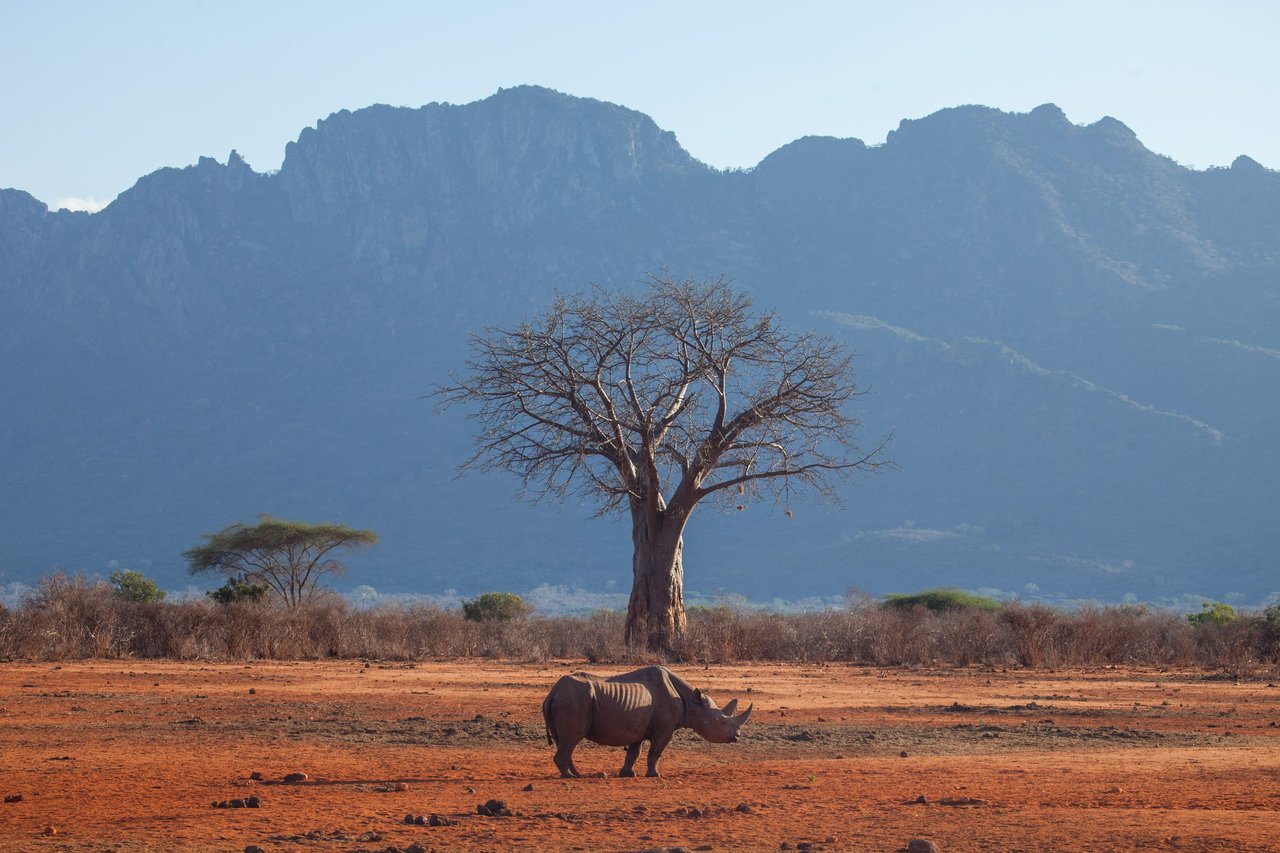
Rare encounter with a critically endangered black rhino. A lone baobob tree looks eerily out of place, while the typical red soil and mountain spines of Tsavo round out the scene.
Tsavo National Park, located in southeastern Kenya, is a sprawling expanse of wilderness that beckons both nature enthusiasts and wildlife aficionados alike. Split into two sections, Tsavo East and Tsavo West, this national park is one of the largest in Kenya, covering an impressive 22,000 square kilometers. The park is renowned for its diverse landscapes, ranging from open plains and savannahs to dense woodlands and riverine ecosystems. The Athi and Tsavo rivers traverse the park, adding a vital water source that sustains the rich biodiversity within.
It is always important to me to try and show as much diversity in landscapes and ecosystems as I can during my safaris. Not only does this give the guests a more complete understanding of the destinations, but it provides opportunities to find different animals living in the different habitats. The dense foliage of Tsavo provides perfect cover for tiny antelope called dik-diks, as well as the very elusive black rhino.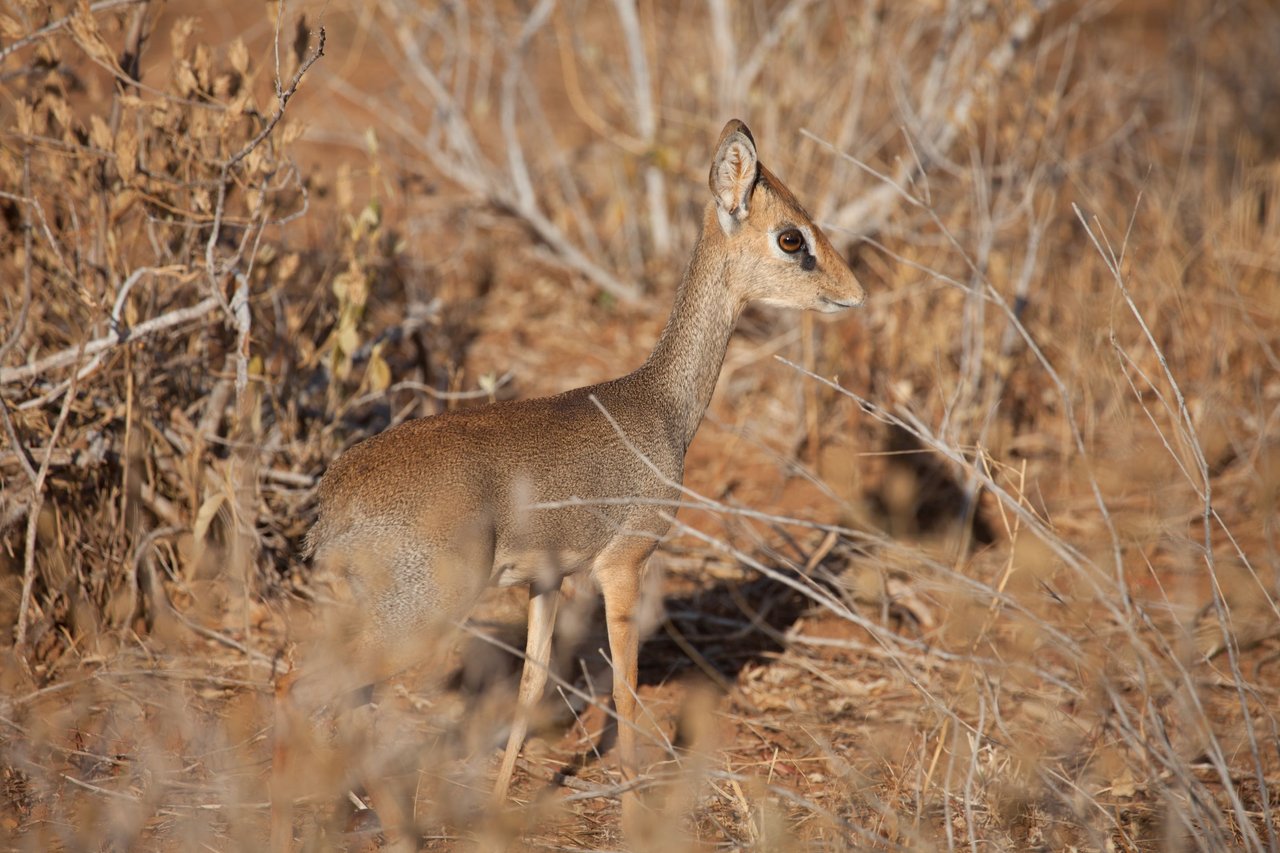
Dik-dik sighting!
Tsavo National Park is a haven for an abundance of wildlife, making it a prime destination for safari adventures. Visitors have the opportunity to witness the iconic "Red Elephants" of Tsavo, known for their distinct reddish-brown hue, which is attributed to the park's red soil. It is also where the elephants raised at the David Sheldrick Elephant Orphanage in Nairobi are eventually re-released, back into the wild. Beyond elephants, Tsavo is home to an impressive array of species, including lions, leopards, buffalos, and a variety of antelope species.
The park is also a birdwatcher's paradise, boasting over 500 bird species, making it a must-visit for ornithology enthusiasts. Colorful species like little bee eaters, superb starlings, and orange bellied parrots, delighted the group. However, it was our amazing encounters with the lilac-breasted roller that turns everyone into a birder.
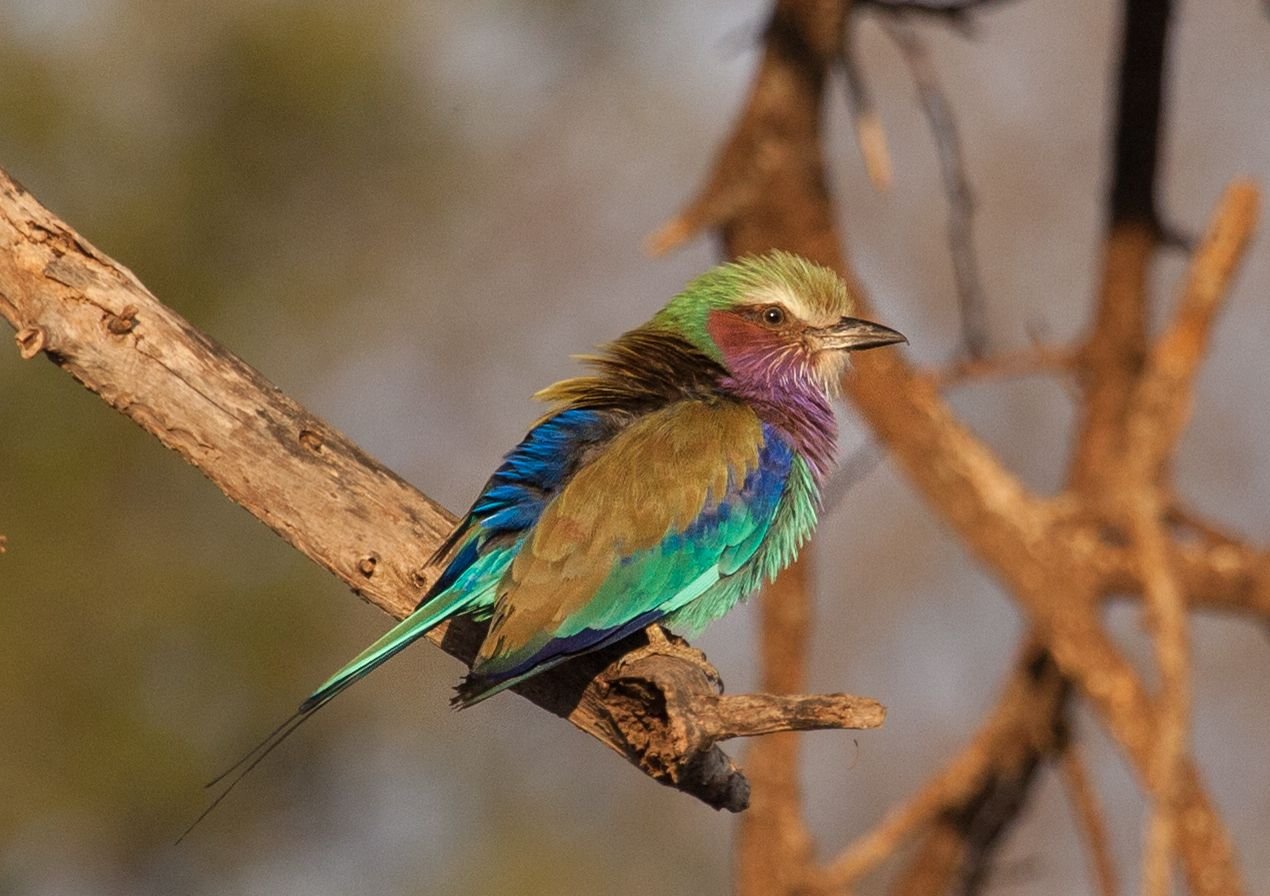
Even with over 500 bird species, this lilac-breasted roller always seems to steal the show.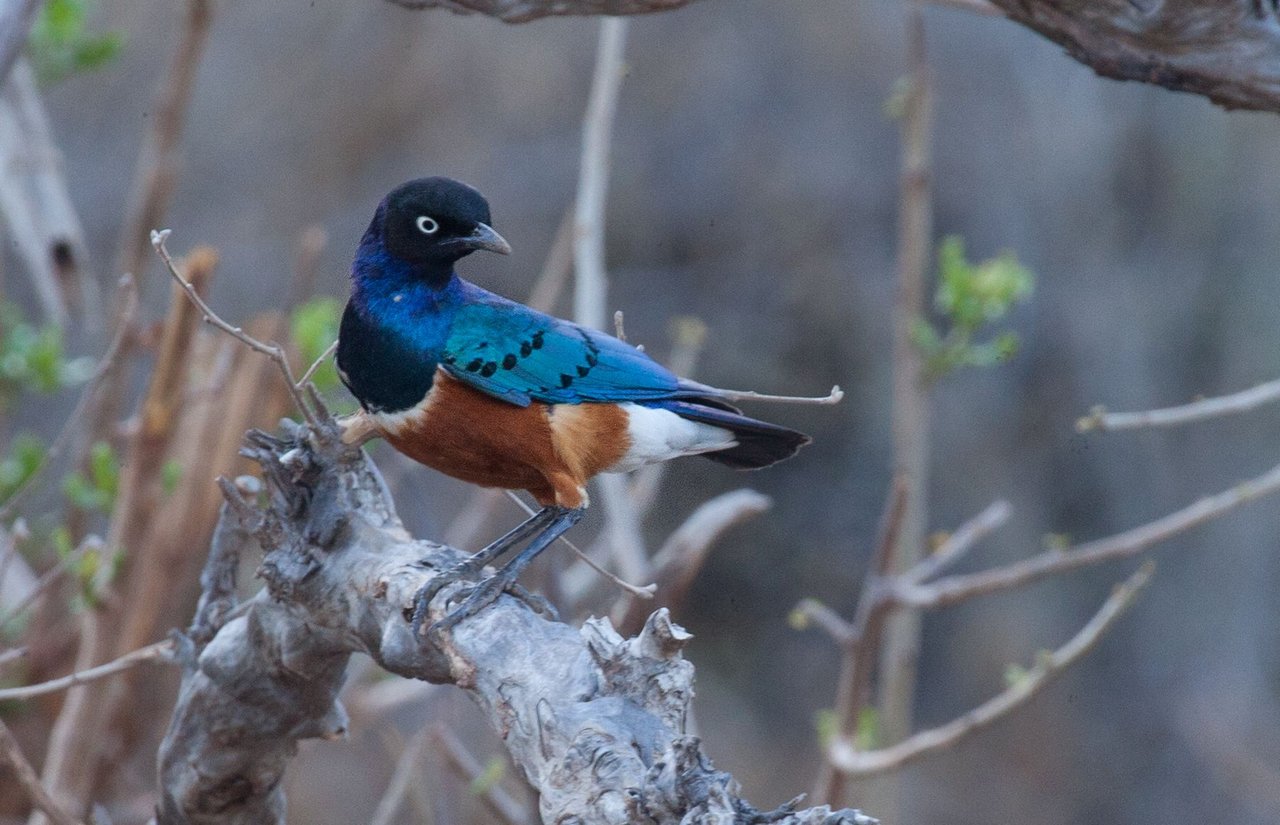
Superb Starling
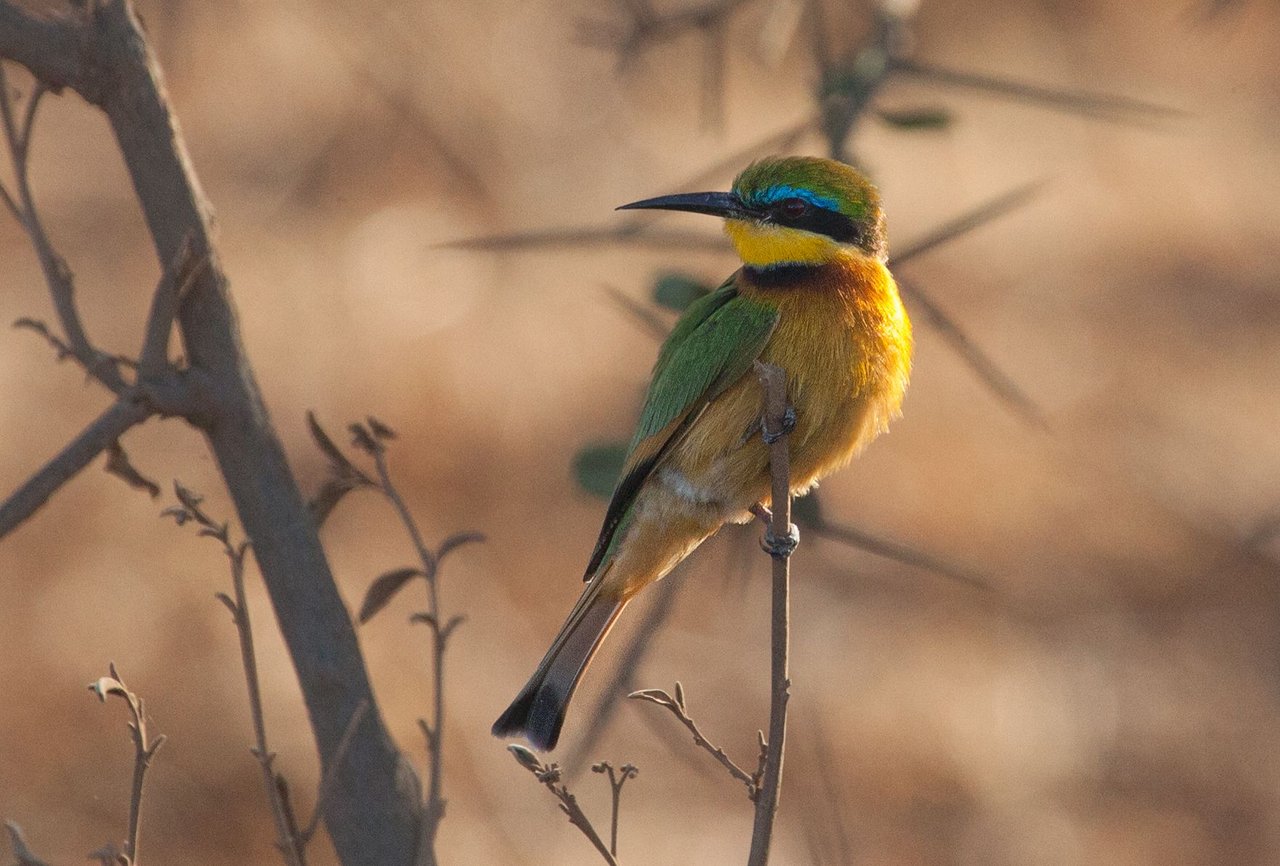
The colorful little bee-eater.
One of the distinctive features of Tsavo West is the Mzima Springs, a series of crystal-clear natural springs that gush from the lava rock. These springs not only provide a refreshing oasis for wildlife but also offer a unique underwater viewing experience for visitors, allowing them to observe hippos and crocodiles in their natural habitat. Another notable attraction is the Shetani Lava Flows in Tsavo West, a stark landscape created by volcanic activity, providing a captivating contrast to the park's other ecosystems.
Checking out the Shetani lava flows, appr. 150 years old.
Tsavo is full of volcanic geology, which creates some pretty unique landscapes.
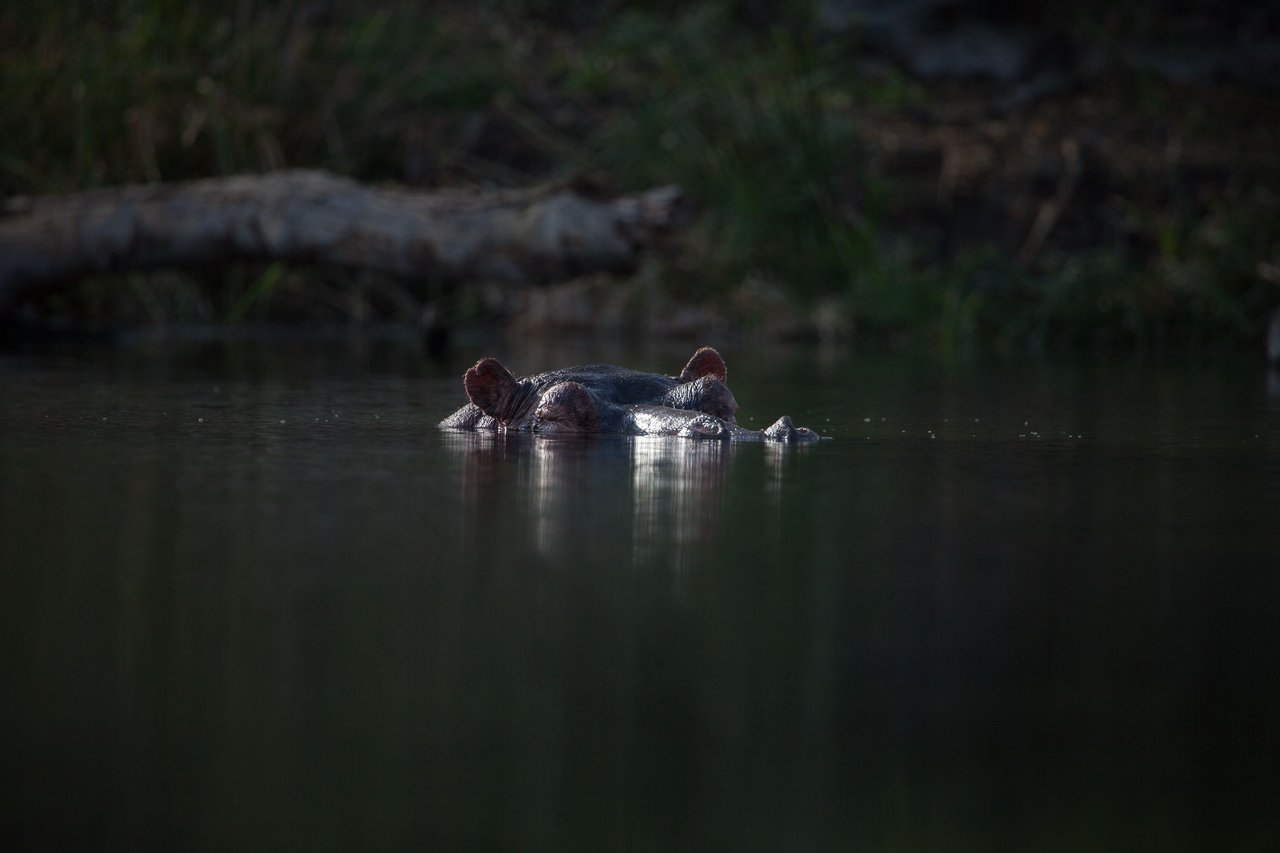
A lone hippo from water level at Mzima Springs.
The park's vastness and relatively lower visitor numbers compared to other Kenyan parks contribute to a sense of untouched wilderness, allowing guests to connect with nature on a profound level. It often feels like we have the park to ourselves on our game drives. Overall, it is a wonderful start to our big game parks on this safari.
Surrounded by the breathtaking landscapes of Tsavo, the lodge offers a unique safari experience, where guests can immerse themselves in the heart of one of Africa's largest and oldest game reserves. The lodge takes its name from the nearby Kilaguni Rock, a massive volcanic rock formation that adds to the dramatic scenery.
Built in 1962, Kilaguni Lodge holds the distinction of being the first safari lodge in Kenya. Its architecture seamlessly blends with the natural surroundings, and the lodge's strategic location provides stunning views of the Chyulu Hills and the timeless expanse of the Tsavo plains. What sets Kilaguni Lodge apart is its innovative waterhole, which attracts a myriad of wildlife, offering guests a front-row seat to observe elephants, giraffes, zebras, and various other species in their natural habitat. The combination of luxurious accommodations, warm hospitality, and the thrill of being in the midst of untamed Africa makes Kilaguni Lodge a captivating destination for those seeking a unique and unforgettable safari experience.
Our lodge, the Kilaguni Serena Safari Lodge, was the very first lodge built in a national park in Kenya. This is the view over the waterhole from our dining area. Every day, big herds of buffalo, zebra, and antelopes come to drink, while the nightime show can bring out the nocturnal animals. Mount Kilimanjaro can be seen on very clear days like this one.
Mike and Keli dressed for adventure.
The team checking out the view.
This is the view if you turn around. Cold Tusker beer for days!
It is quite cool at night here, but the mid day heat is perfect for a dip at the pool.
Our ranger guide, Clause, in case we run into any elephants or buffalo while on foot in the park.
The team wanted a challenge so we climbed a slippery cinder cone for some wonderful views.
What an adventure to share with each other.
From L to R: Dai Mar, Rob, Kris, Dan, Keli, Mike, and Tracy.
Keli checking out the inside of a hippos mouth.
Our lodge, located right in the middle of the park, and the wildlife action.
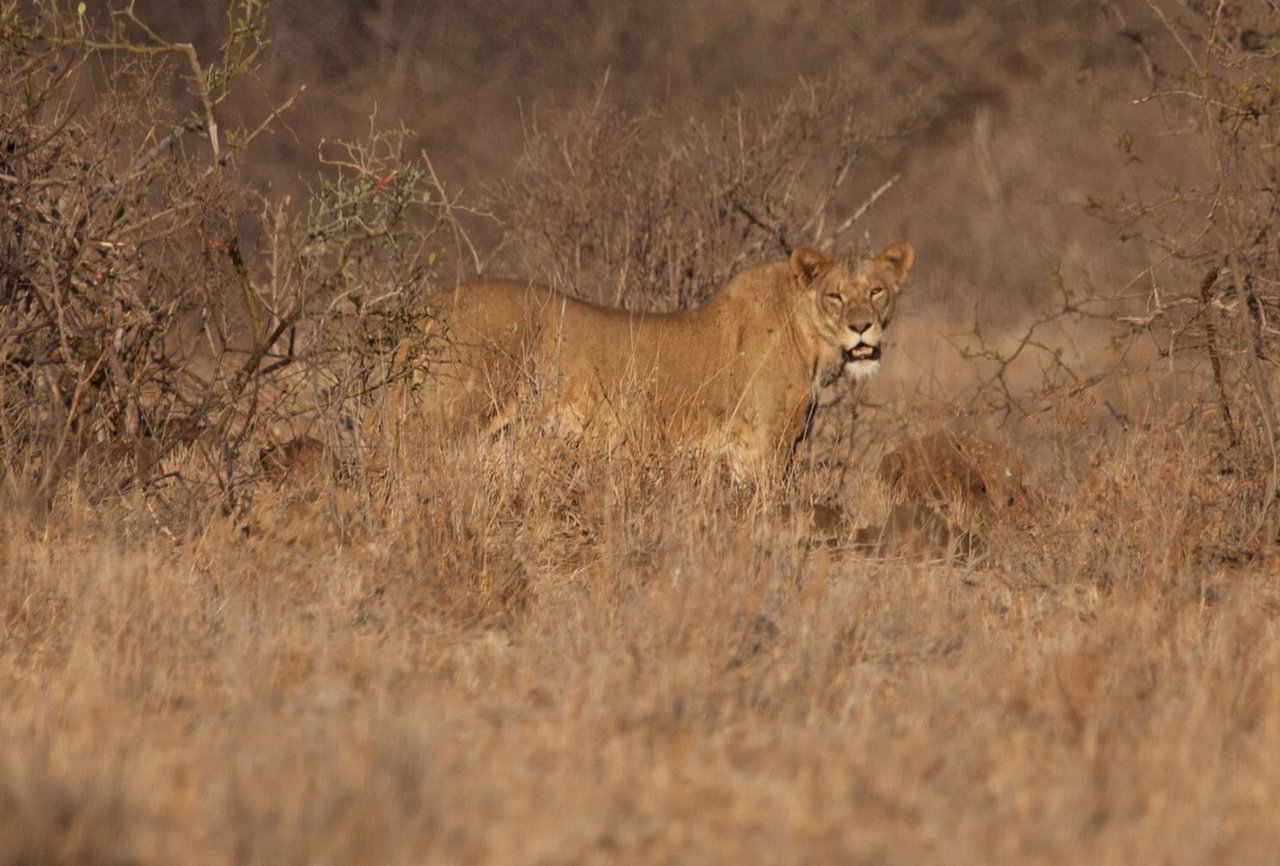
We did catch a glimpse of this female lion. It looked like it had a gore wound in its chest. I surmised that it was a hunt gone wrong. Hopefully she recovers and pulls through. Dr. Dan was just about ready to jump out of the car and operate.
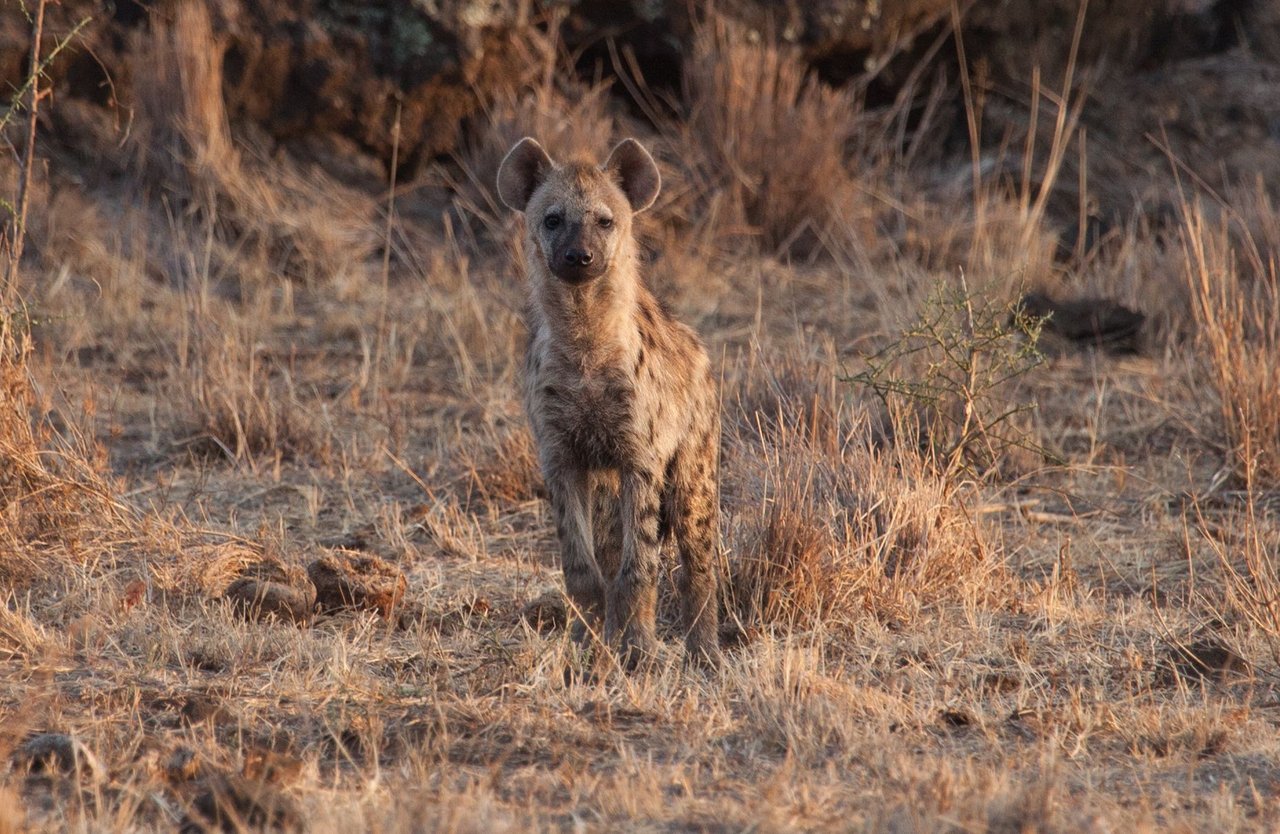
A spotted jackal, staring us down on our early morning drive.
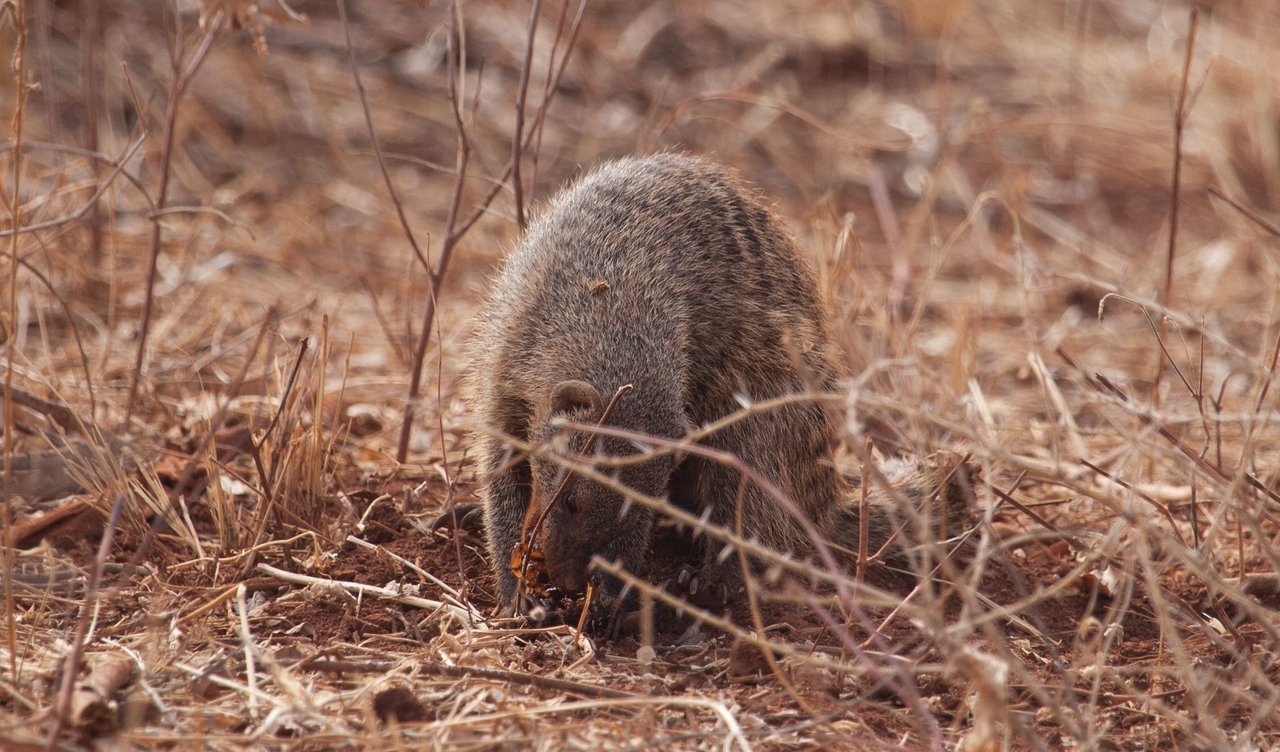
We watched this banded mongoose digging like crazy for about five minutes, before it pulled out a giant scorpion and tore it to pieces.
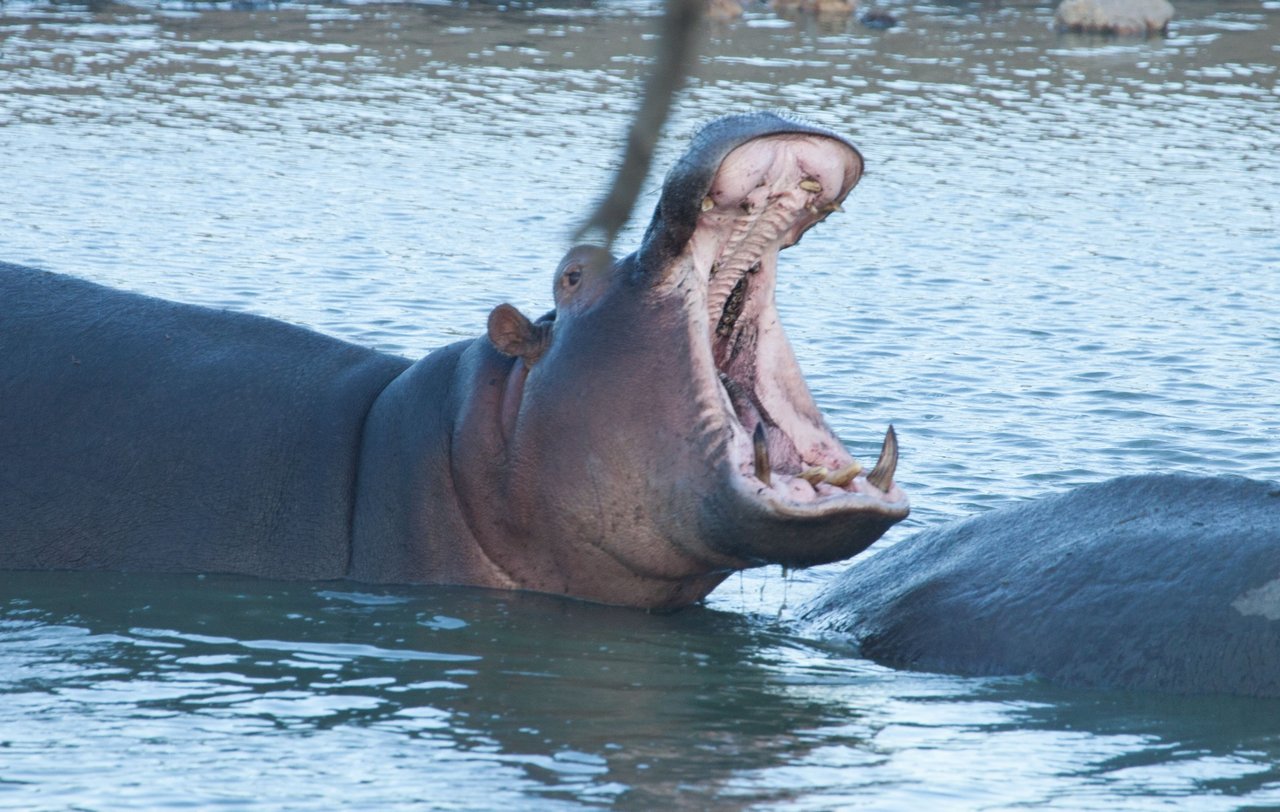
The classic hippo yawning picture, ruined by a wayward stick at the top.
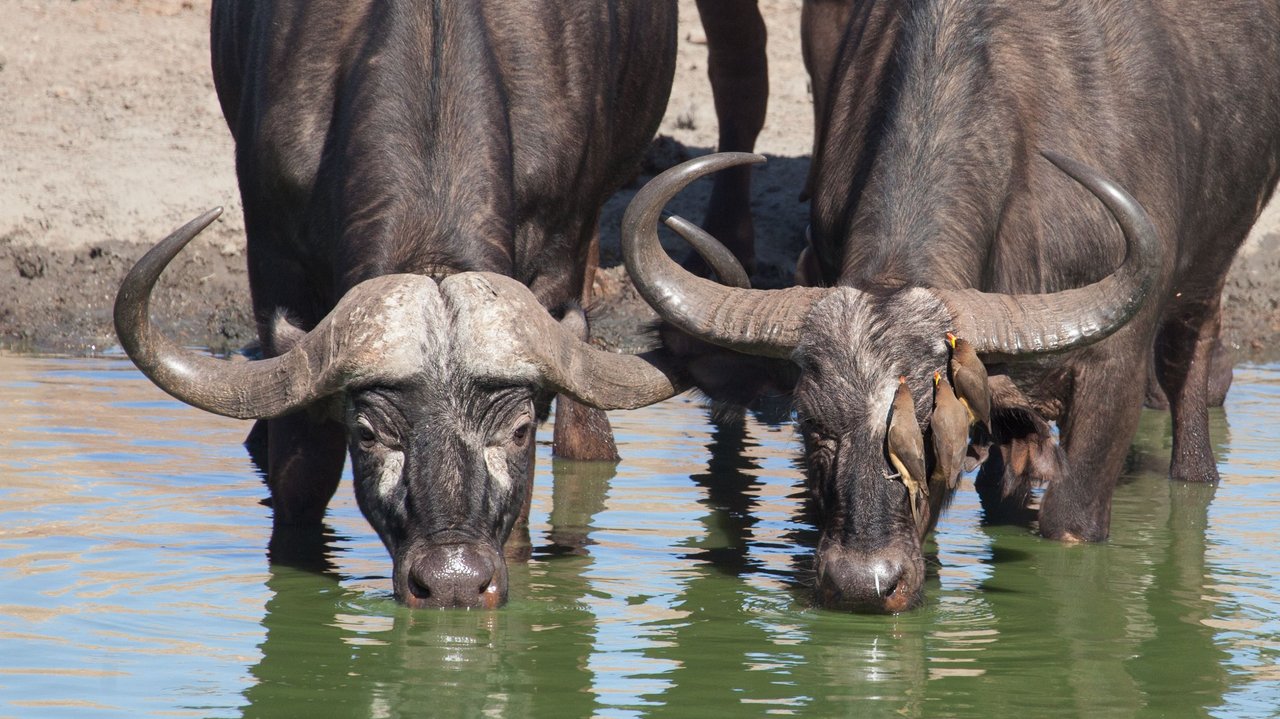
Thirsty buffalo. One's face is covered in oxpeckers.
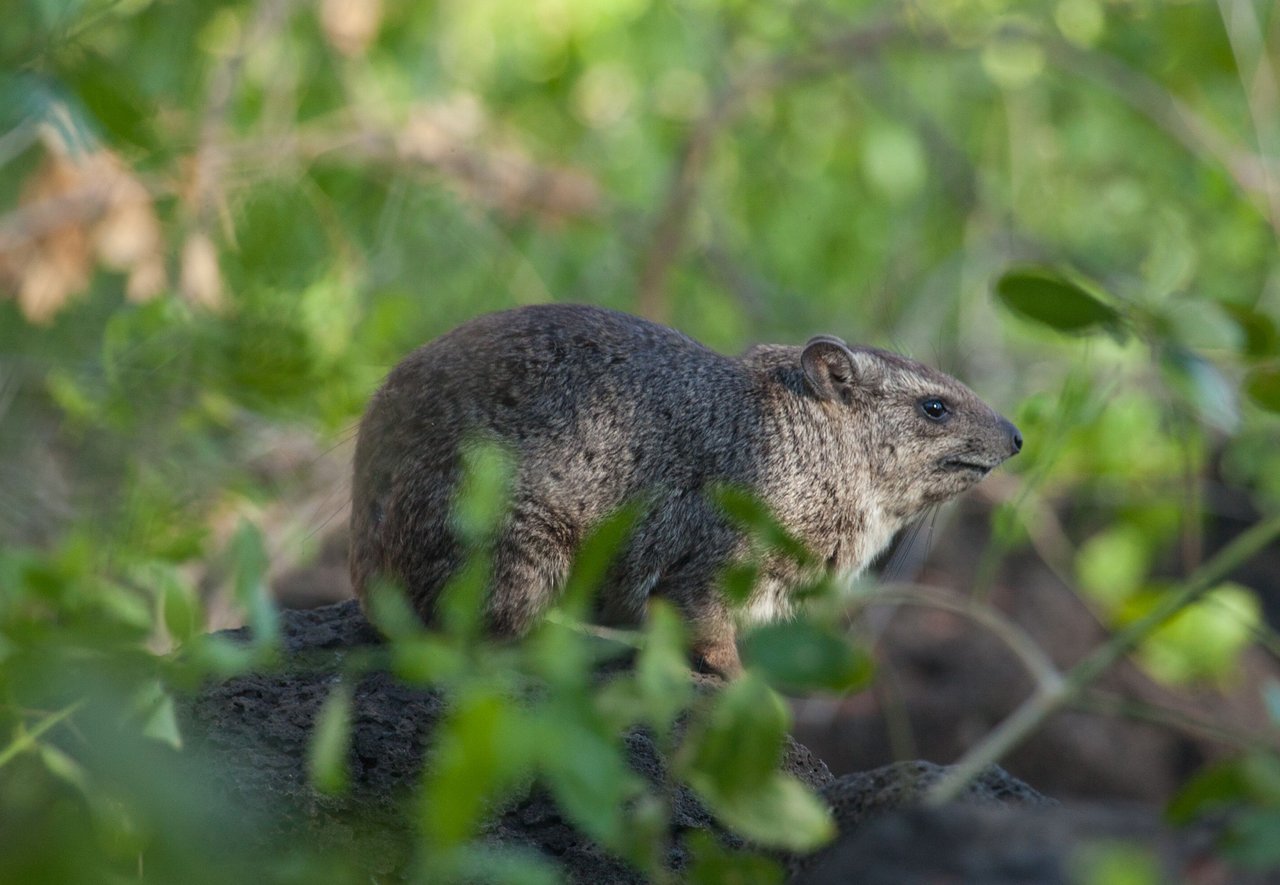
All the rocky outcroppings provide great habitat to the rock hyrax.
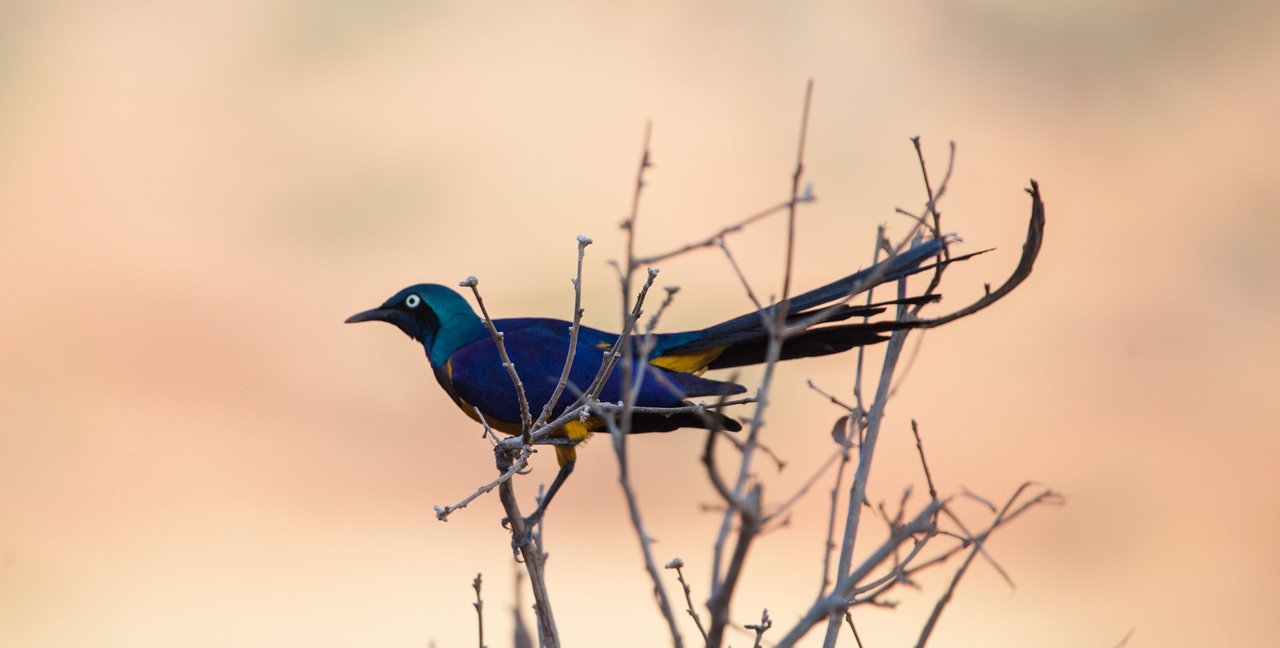
Golden breasted starling
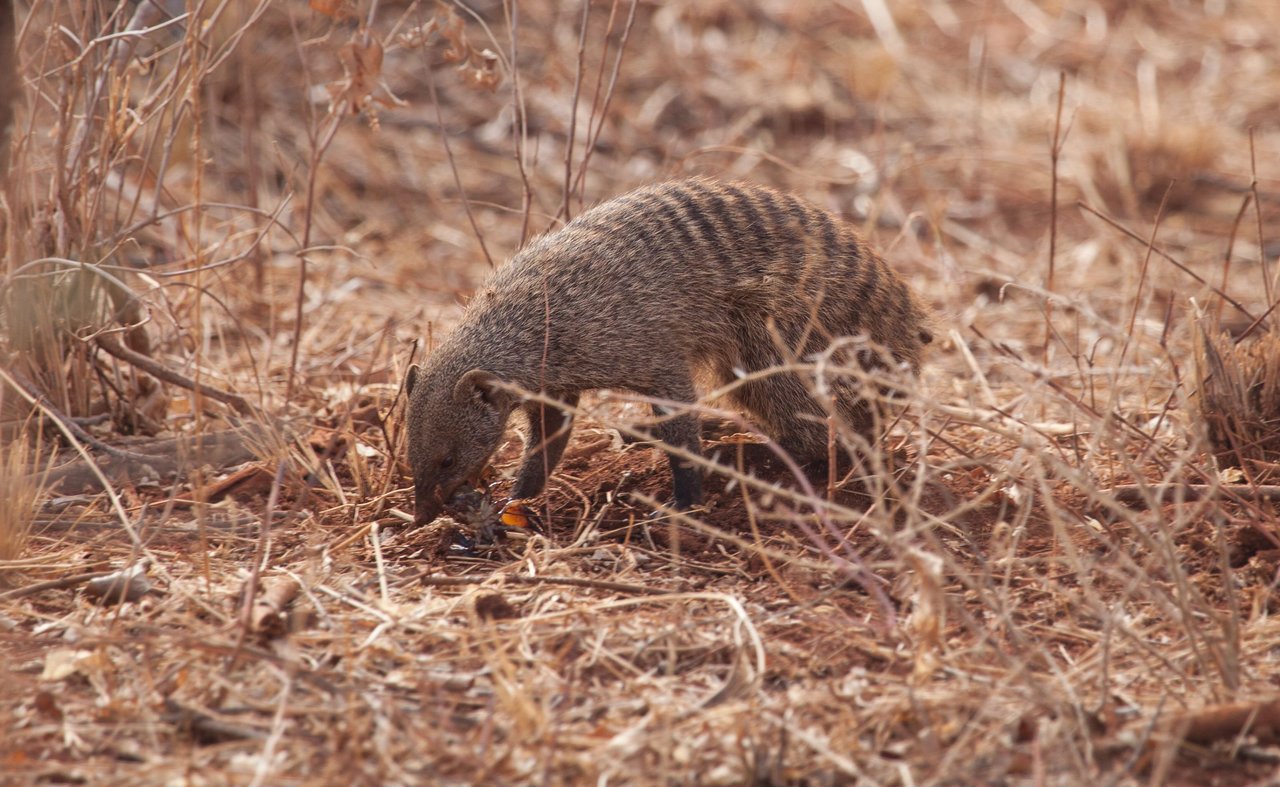
Banded mongoos with scorpion dinner. Our first kill.
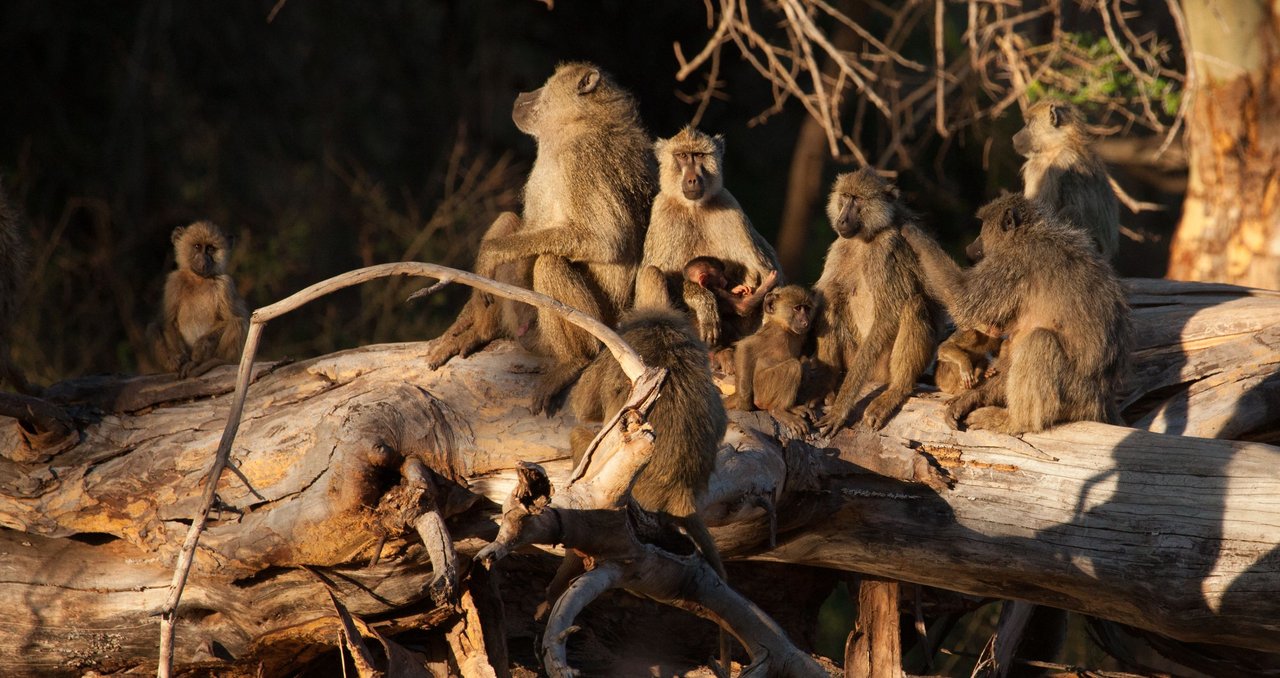
A troop of baboons early in the morning.
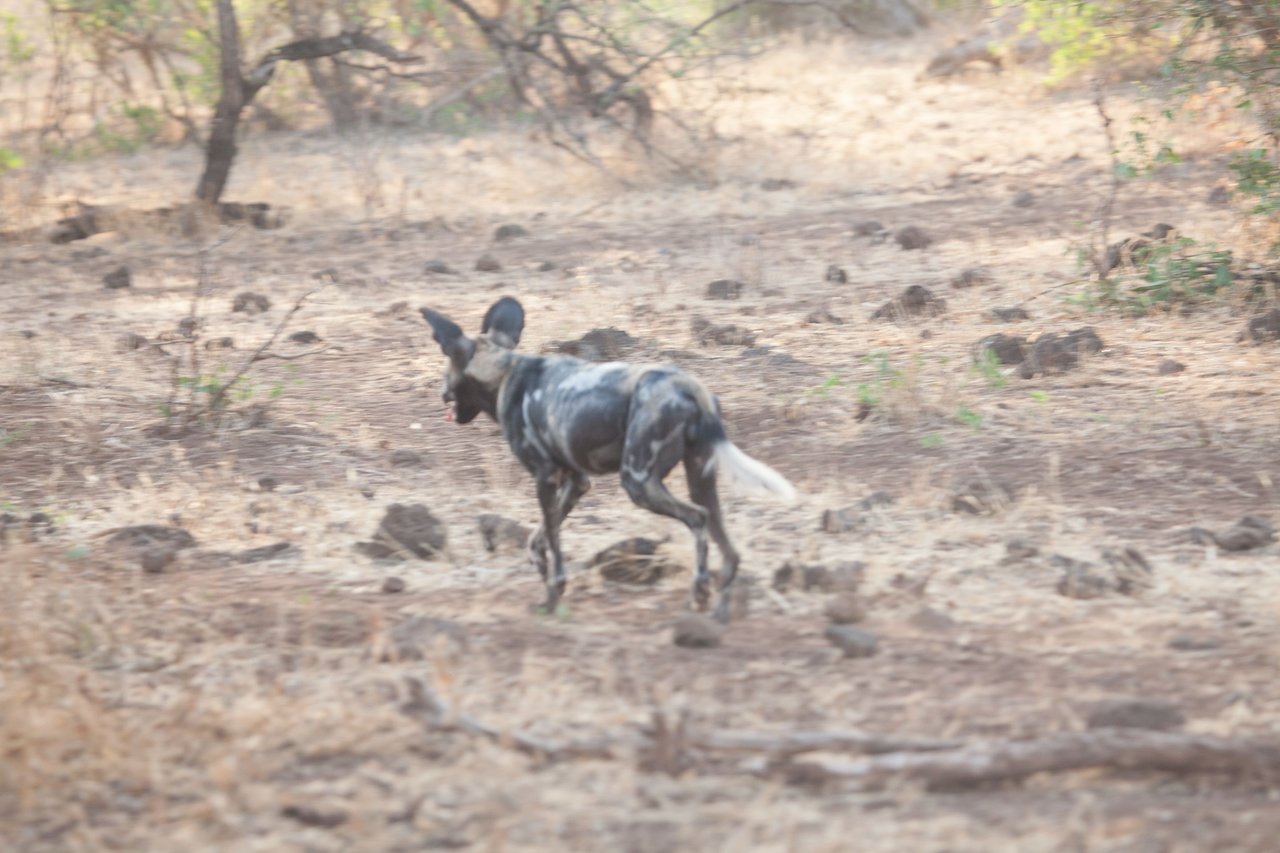
Our close encounter with African wild dogs was a surprise to us all. It was brief but documented!
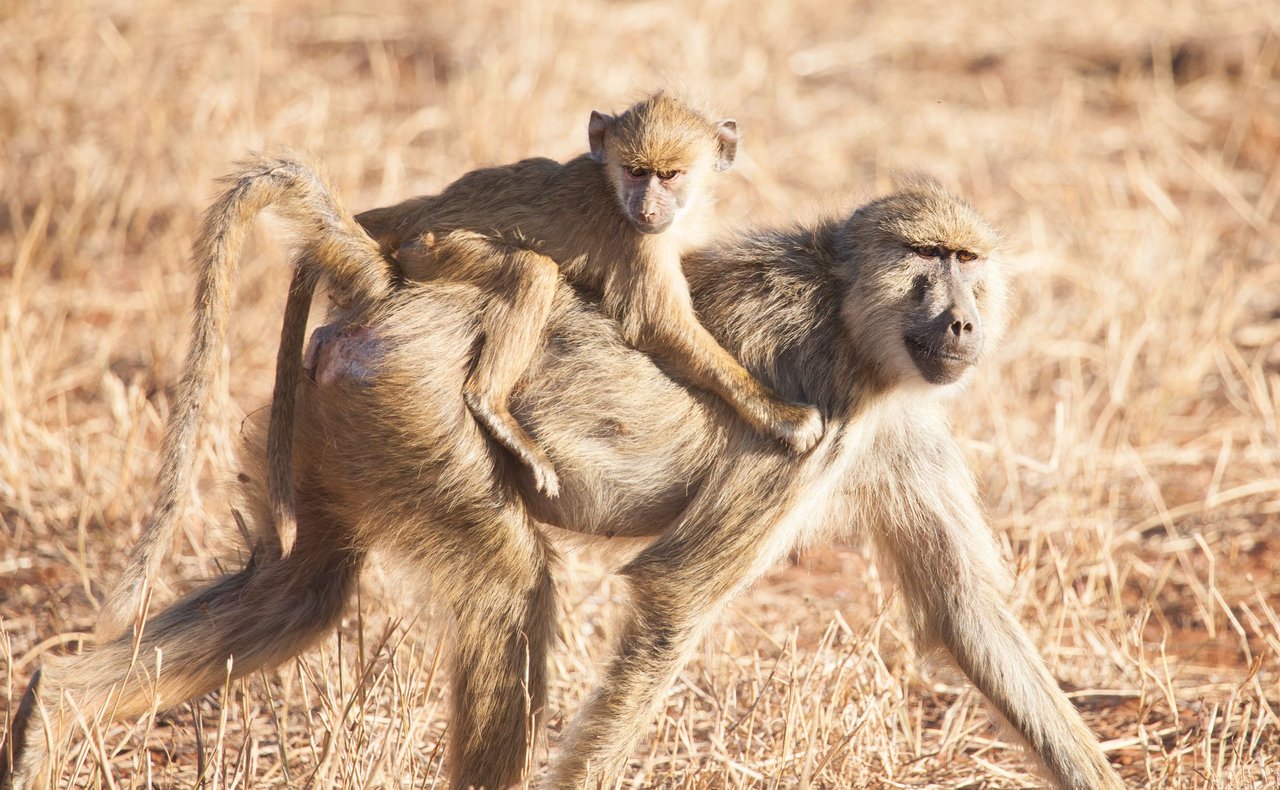
Baby baboon catching a ride on mom.
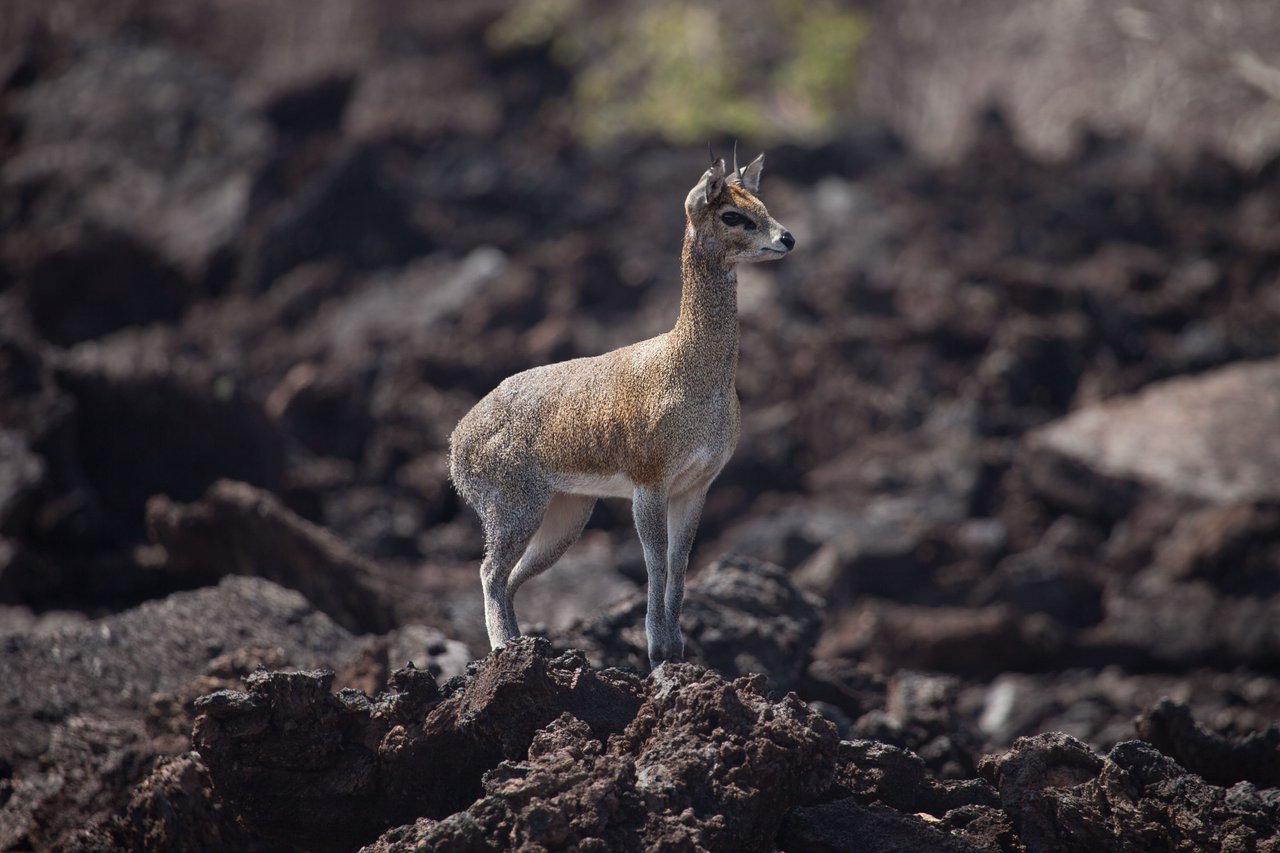
Klipsprings antelope on the Shetani lava flow.
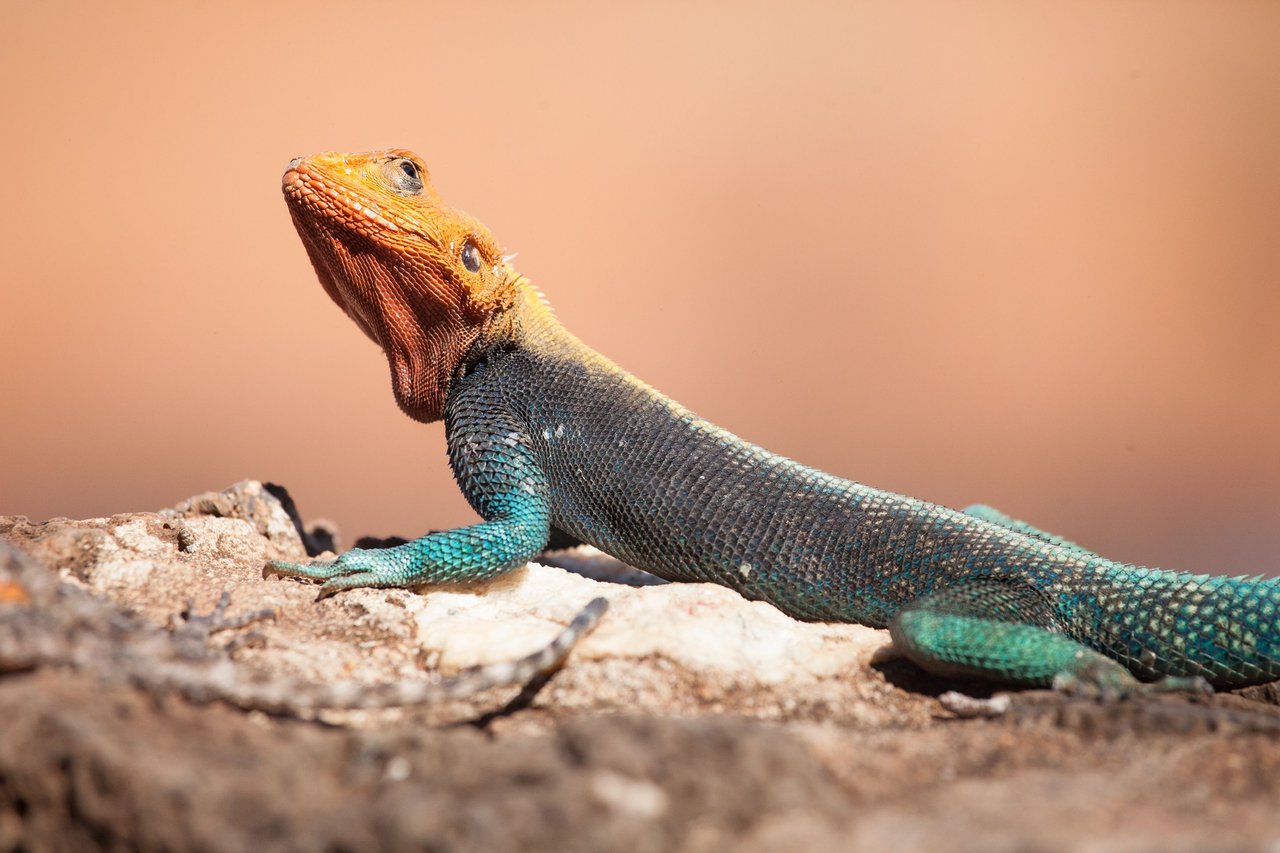
Agama lizard
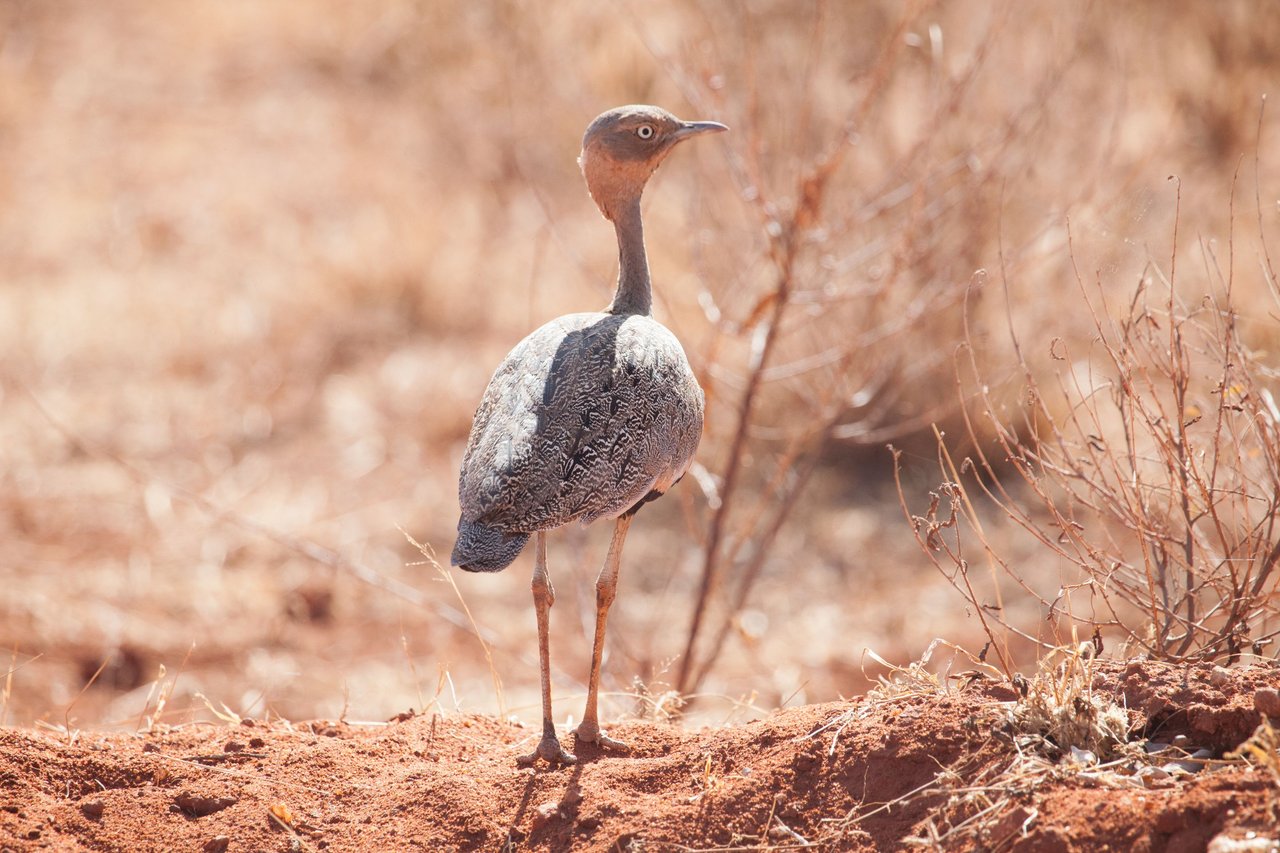
Black bellied bustard.
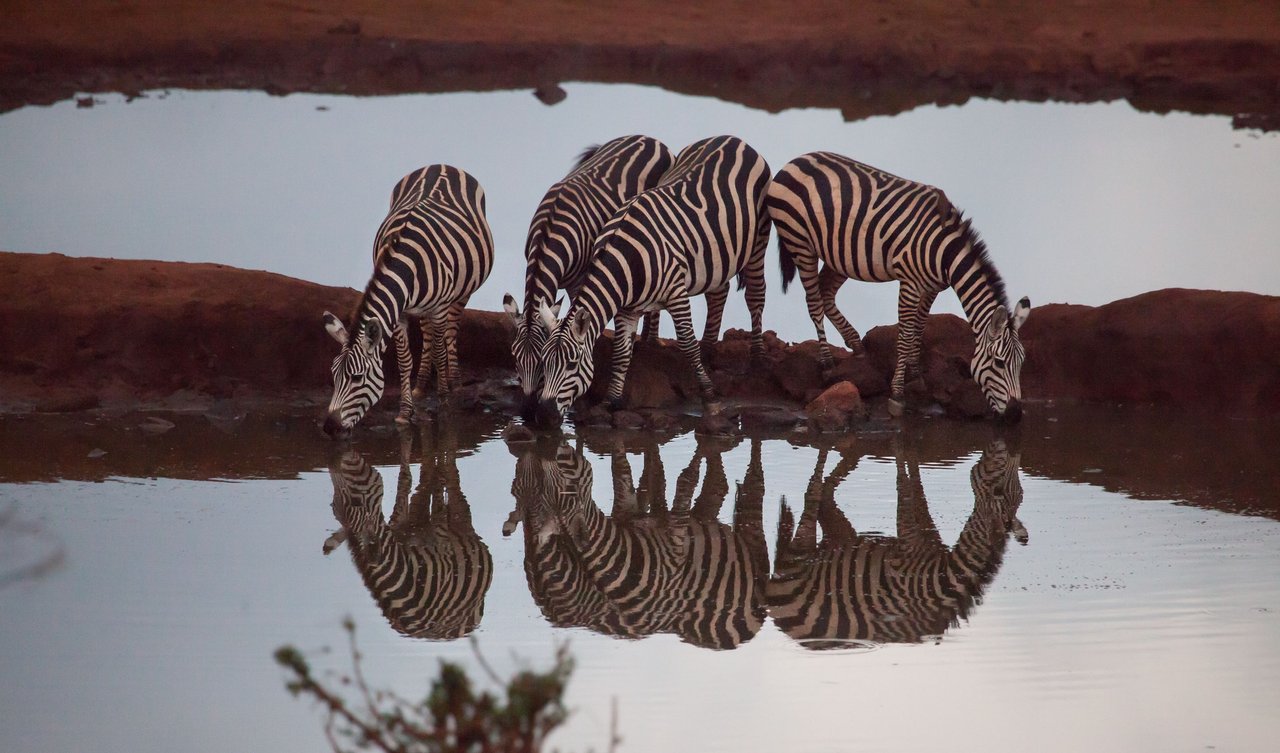
Just sitting at the water hole and watching with a cold gin and tonic in hand never fails to disappoint.
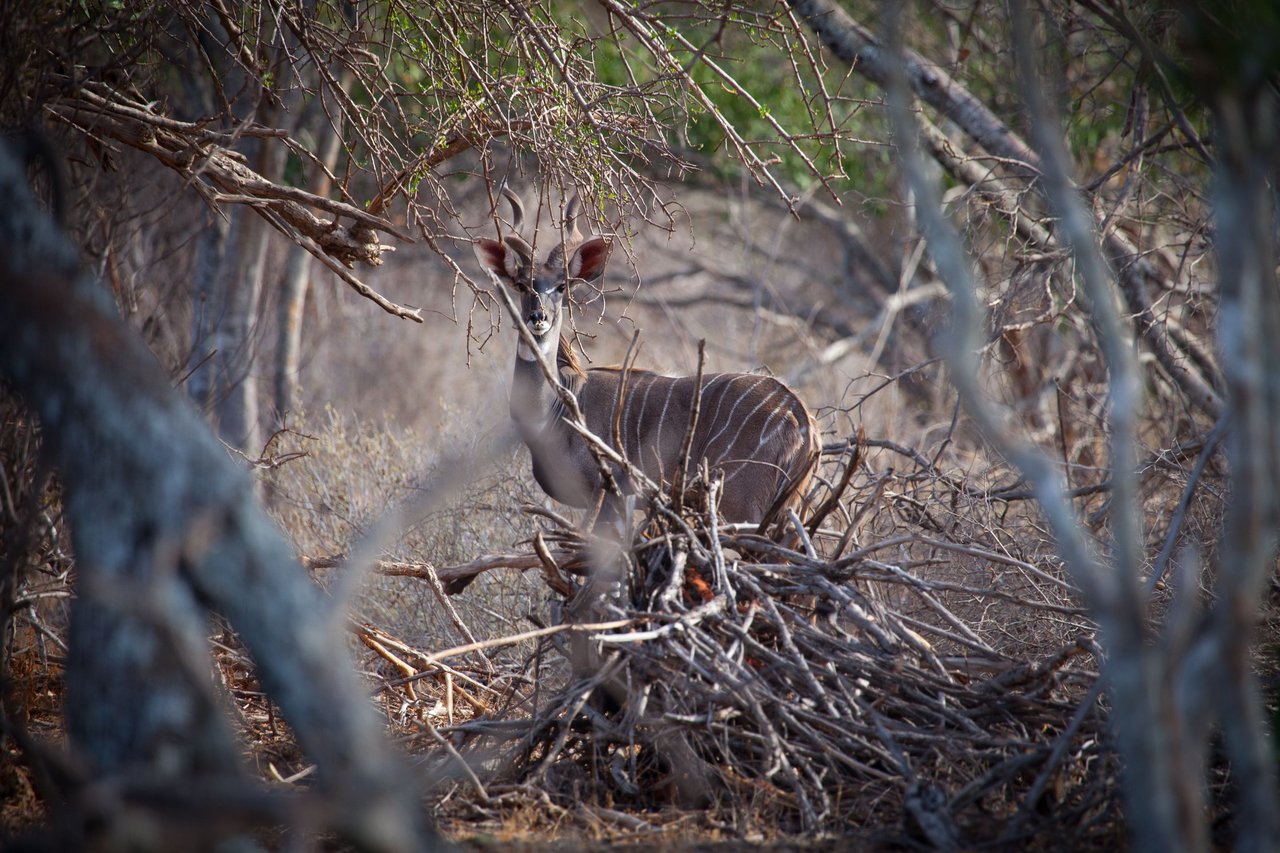
We got our first look at kudu in this park.
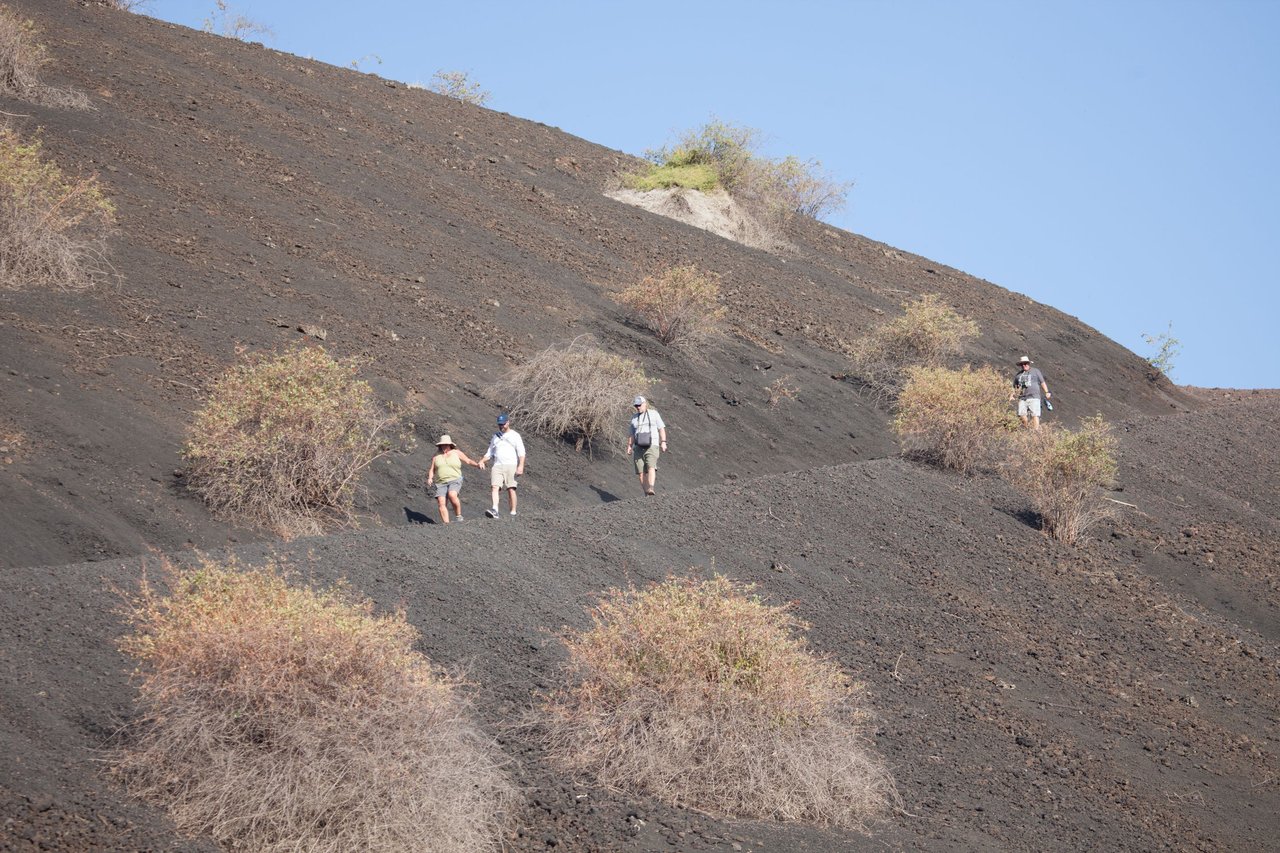
Lending a helping hand on the way down the cinder cone.
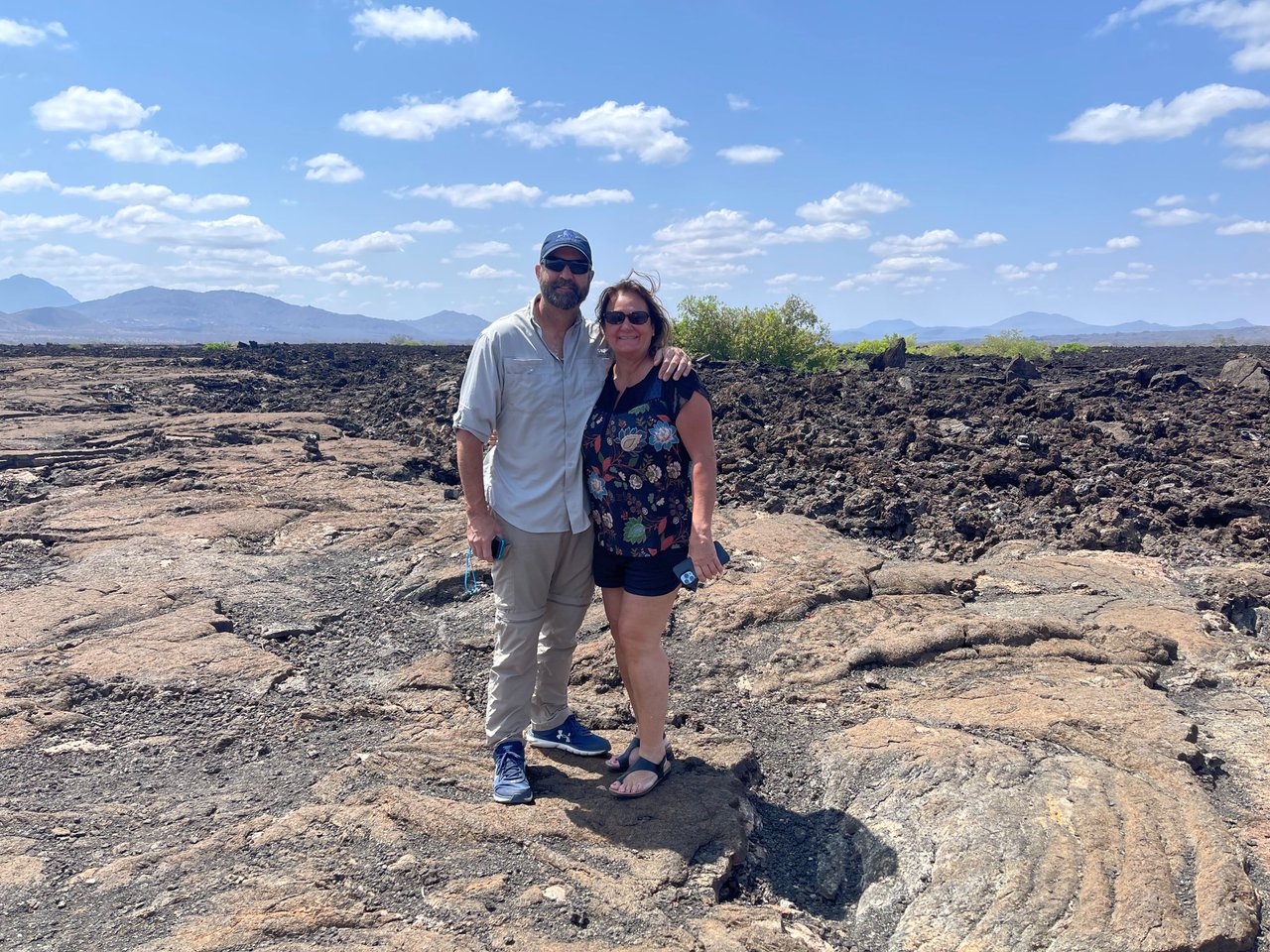
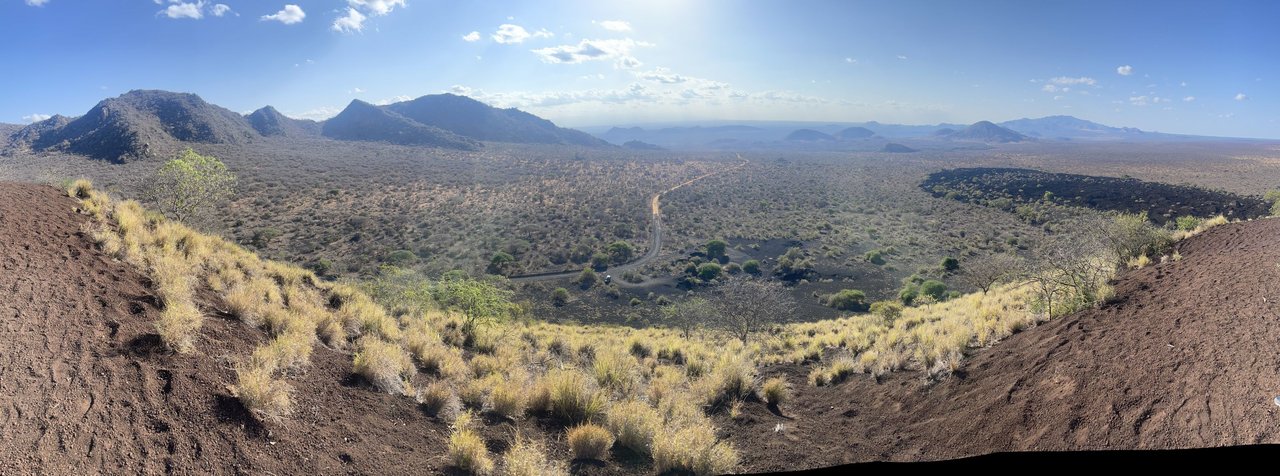
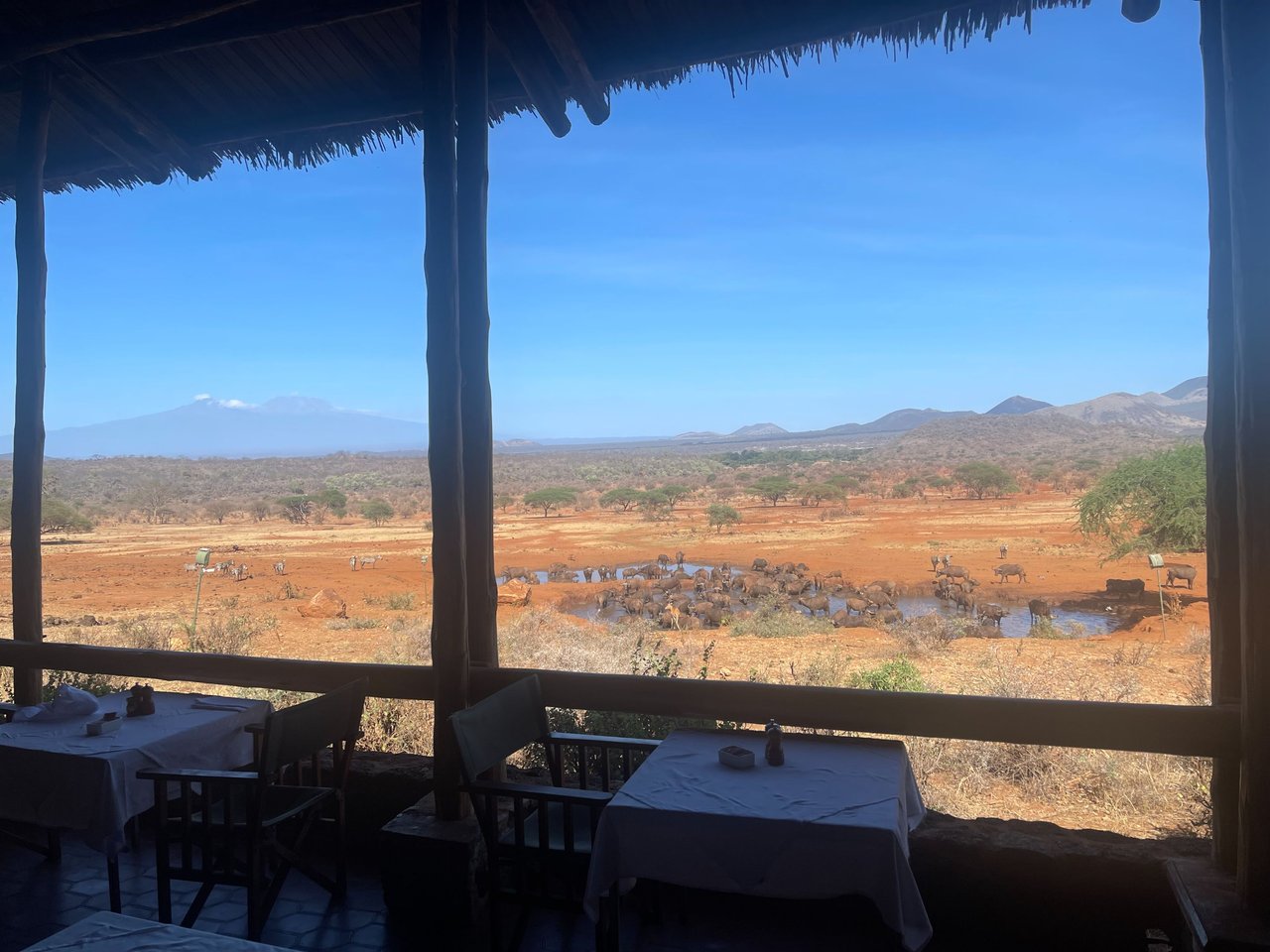
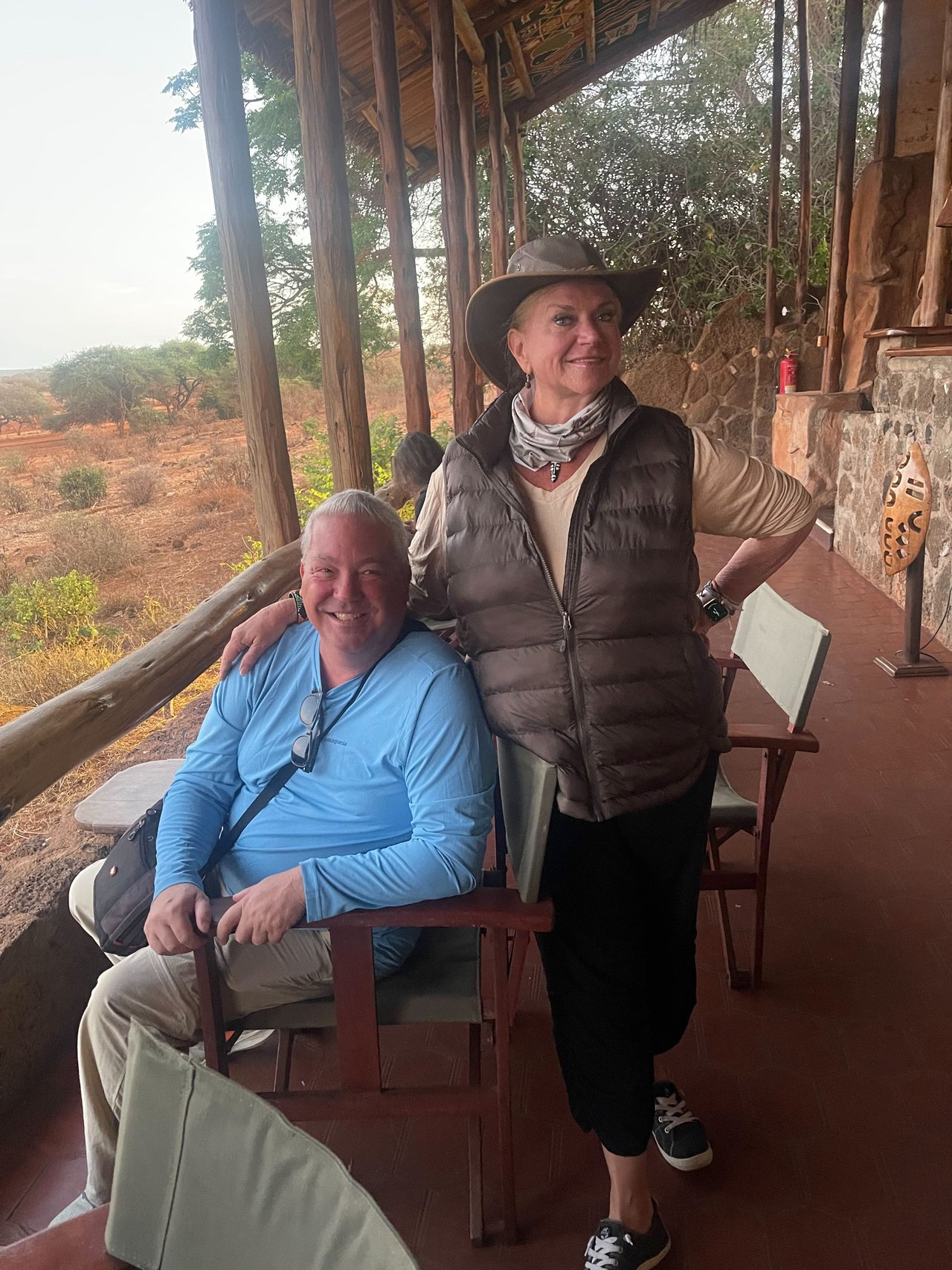
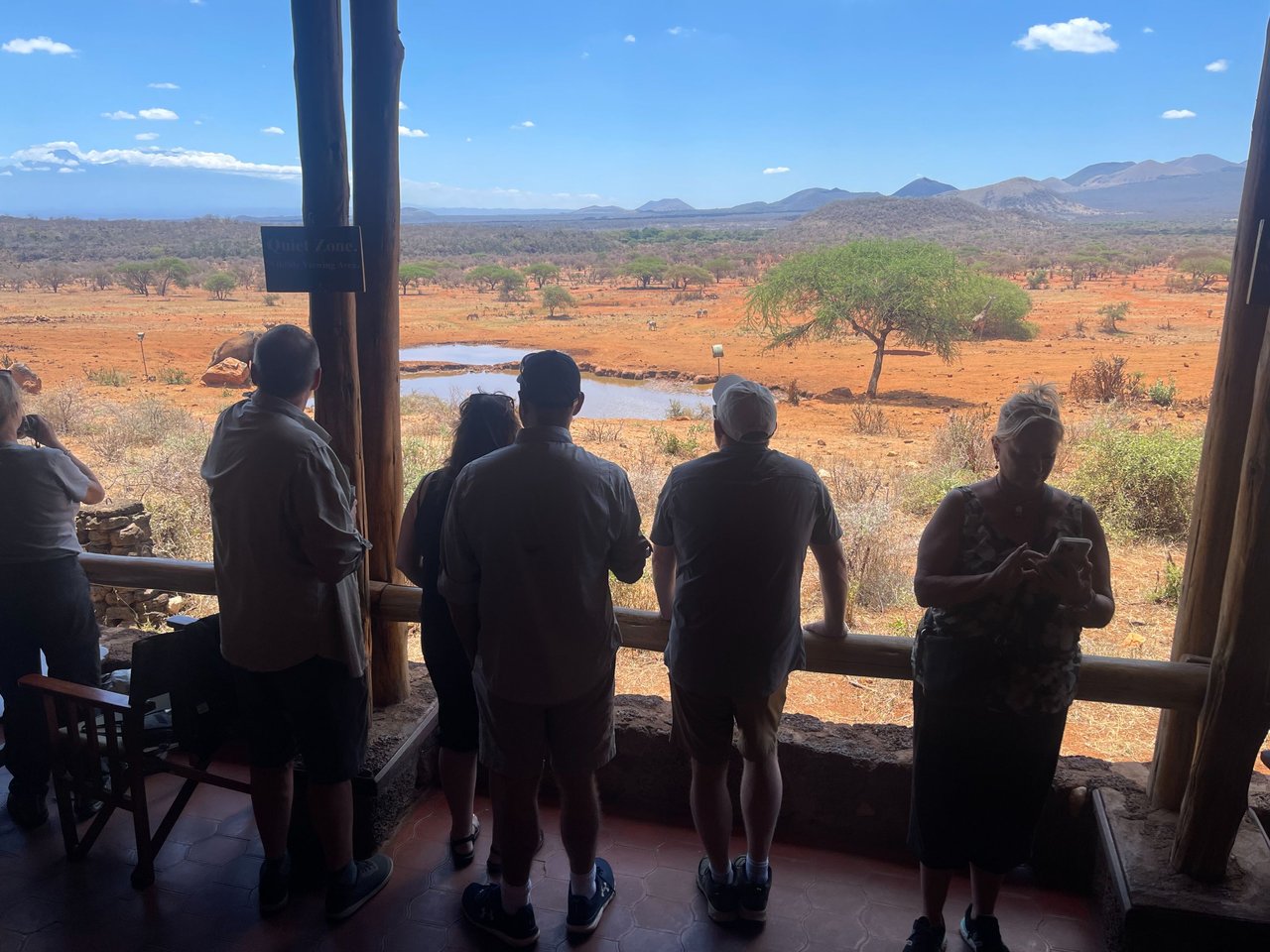
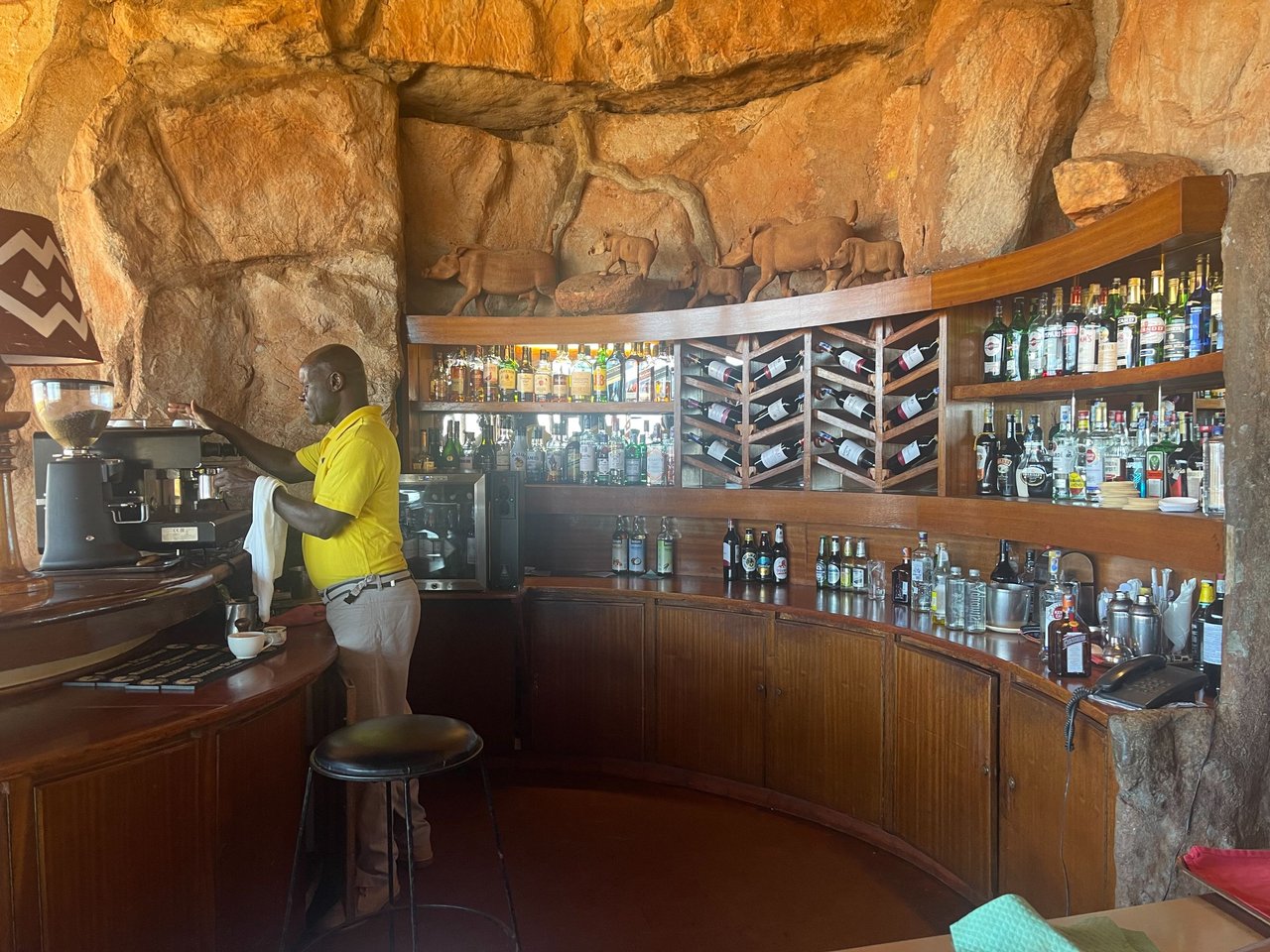
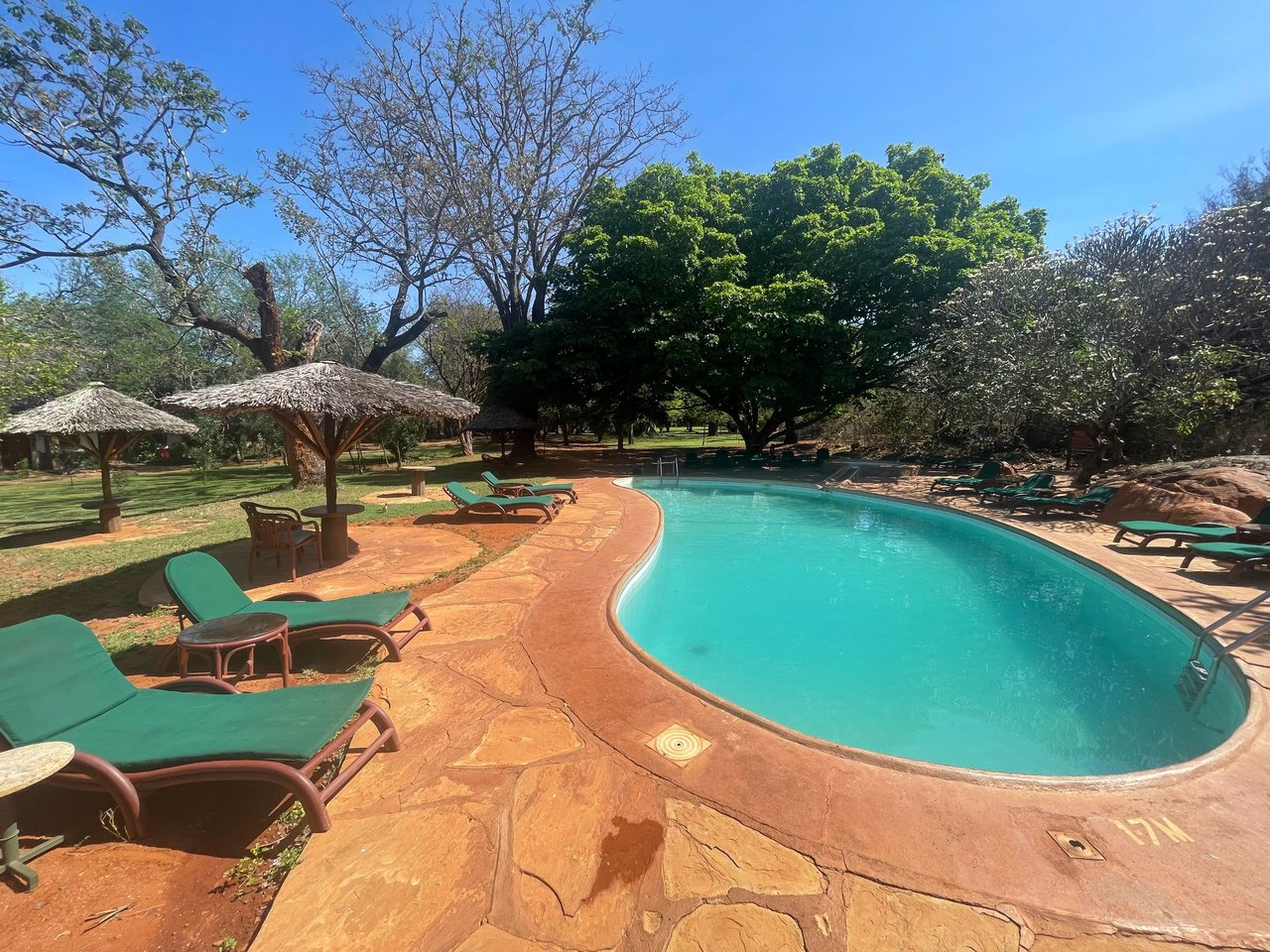
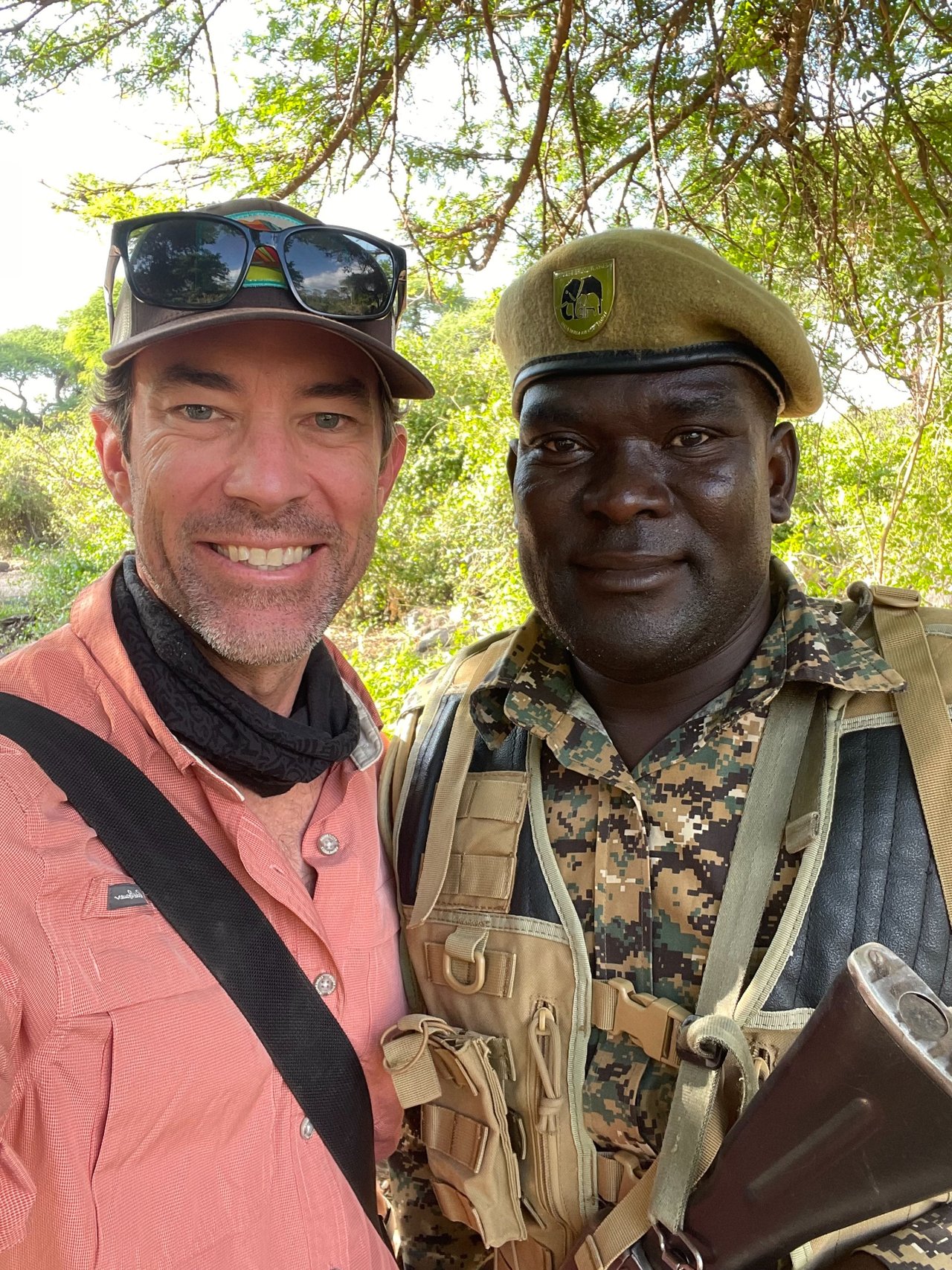
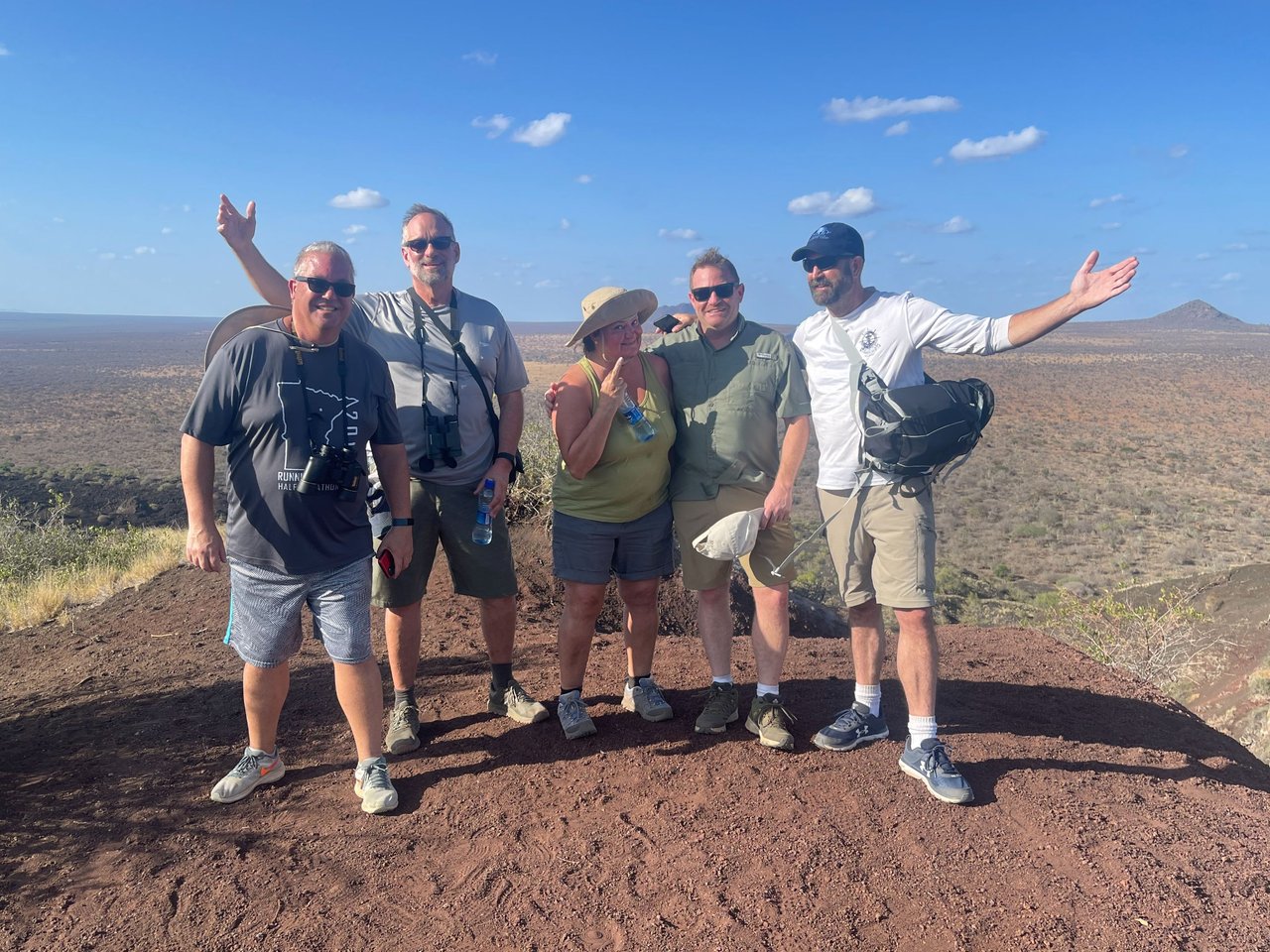
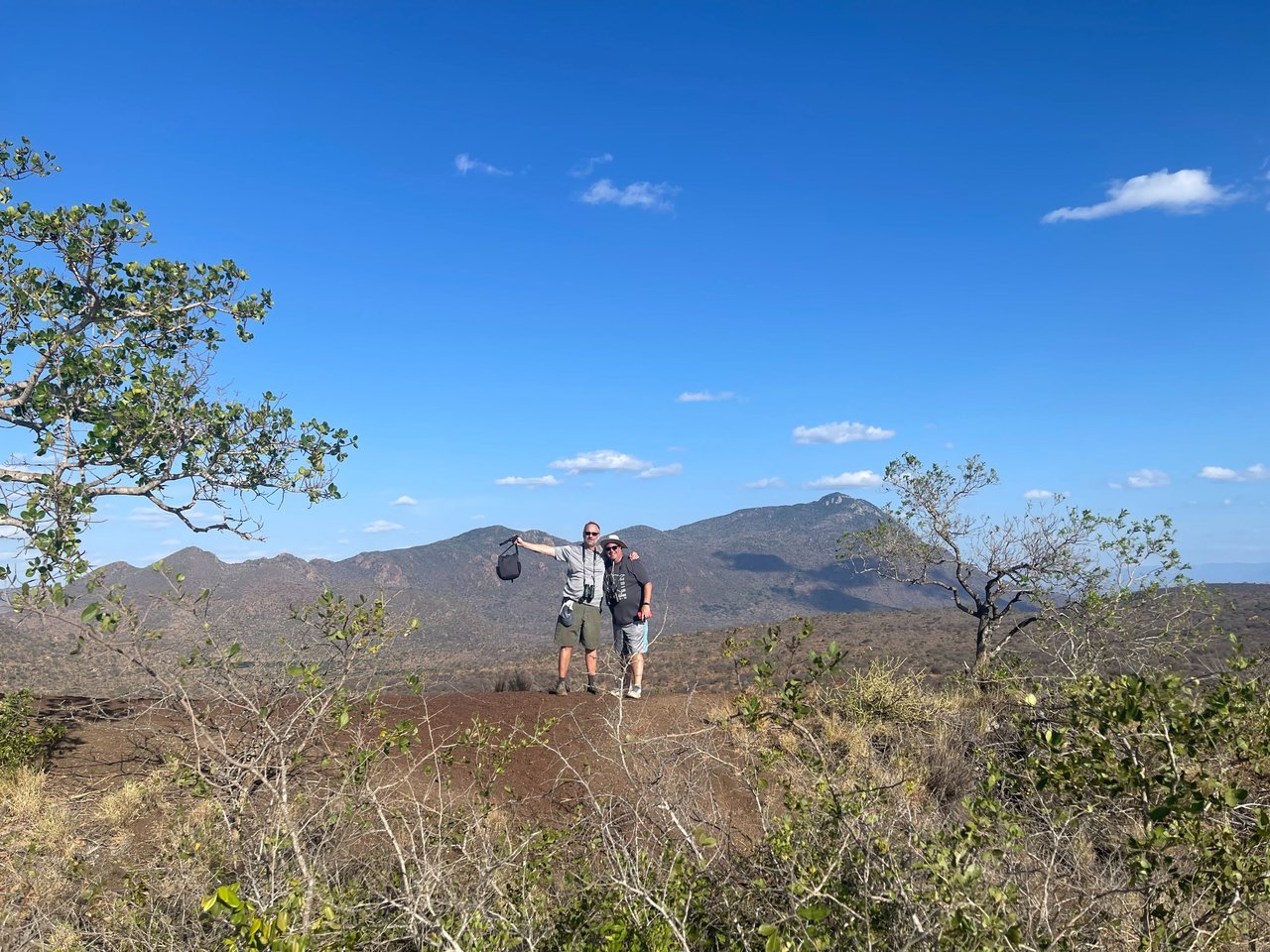
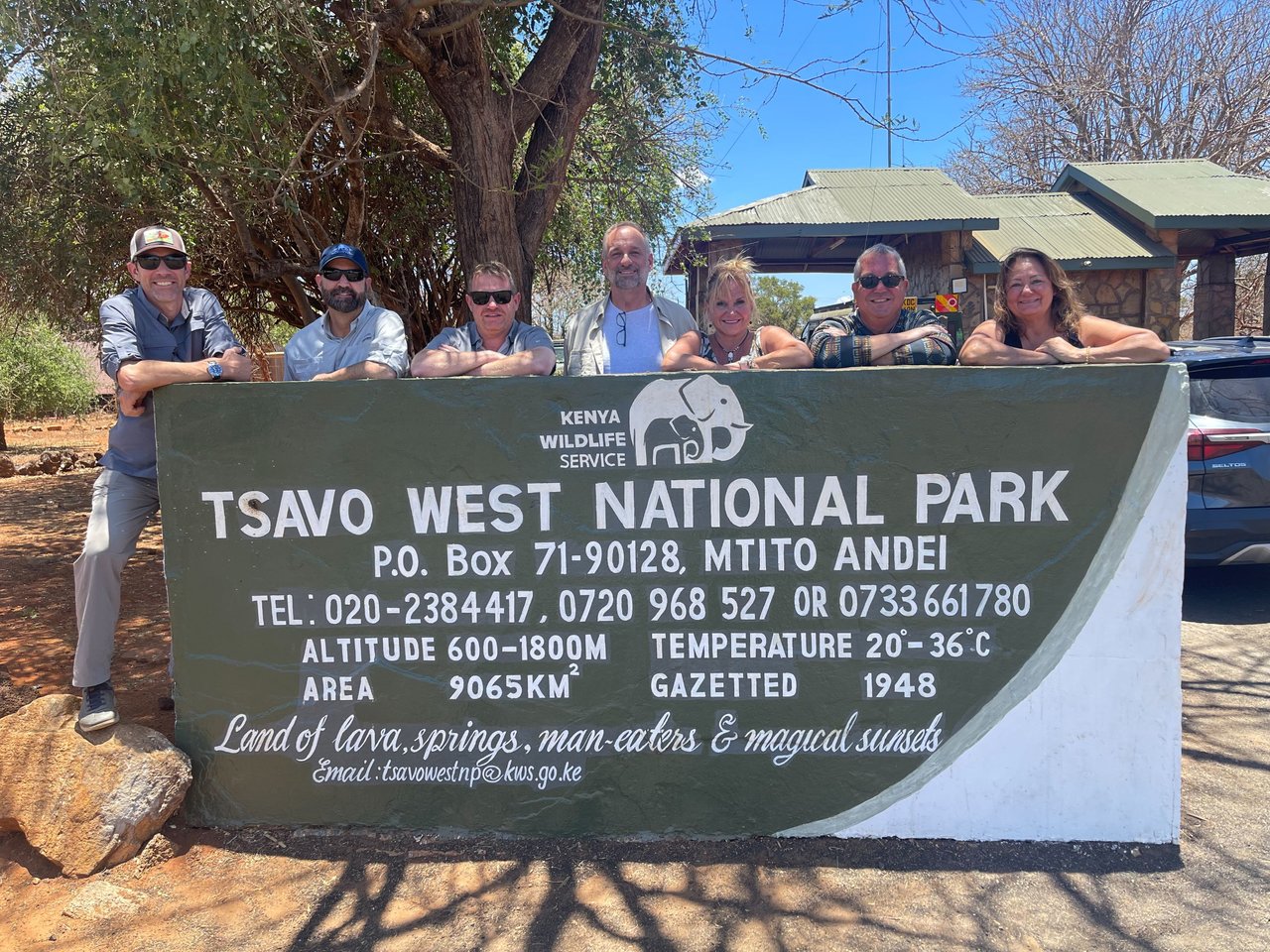
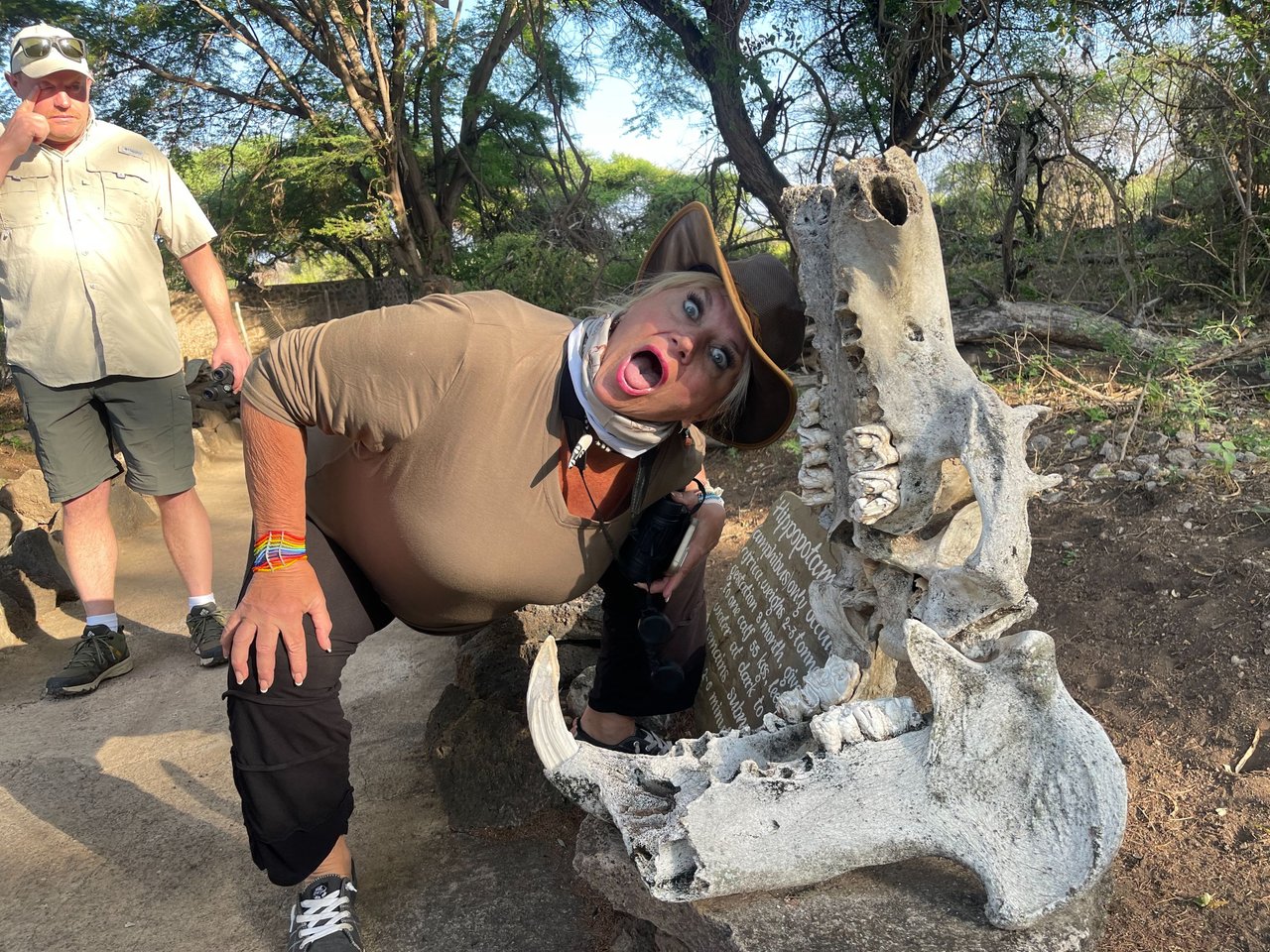
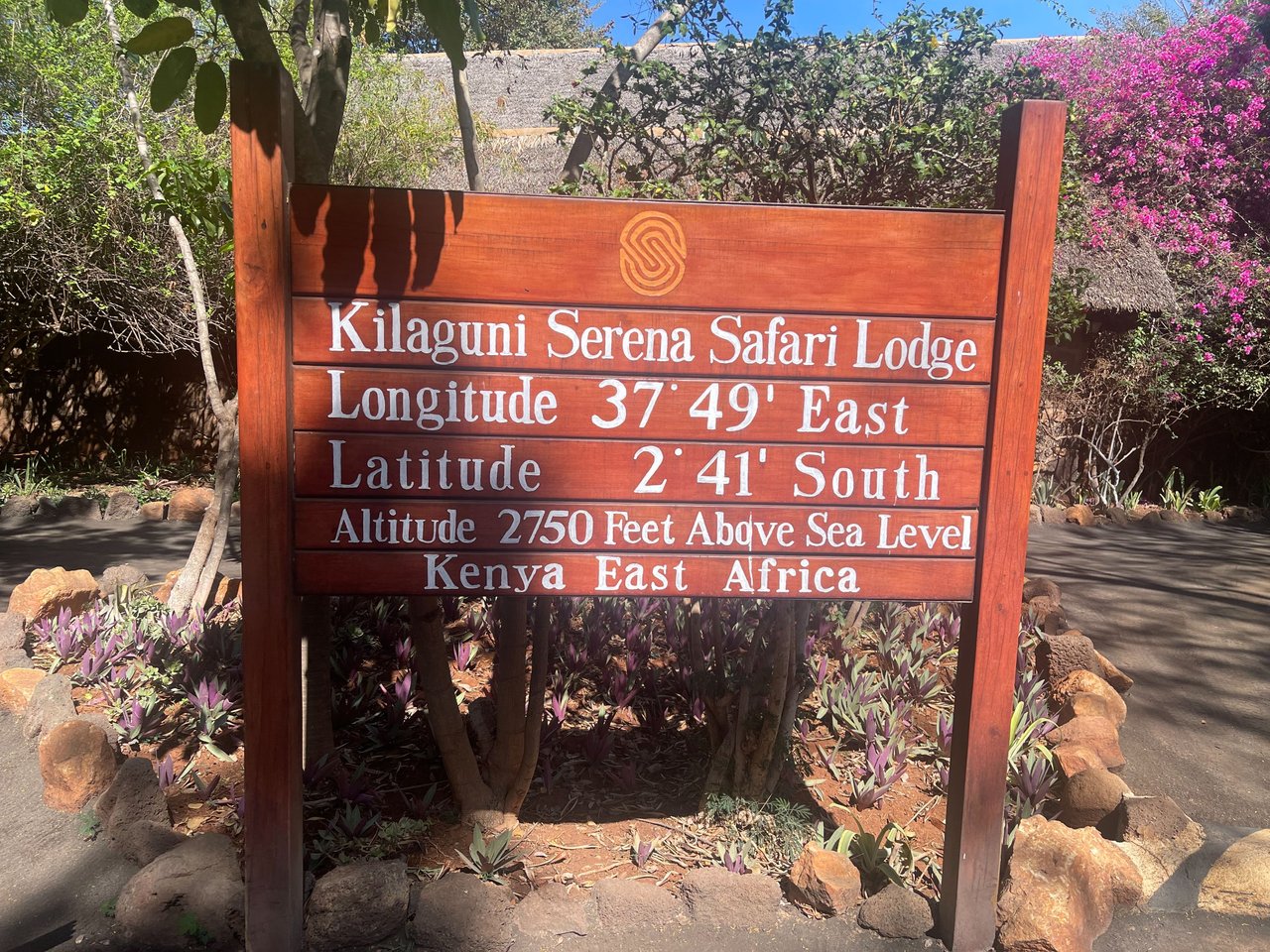



Comments
Post a Comment
Leaving a comment is a great way to provide feedback, ask further questions, and inspire more answers...so go for it.